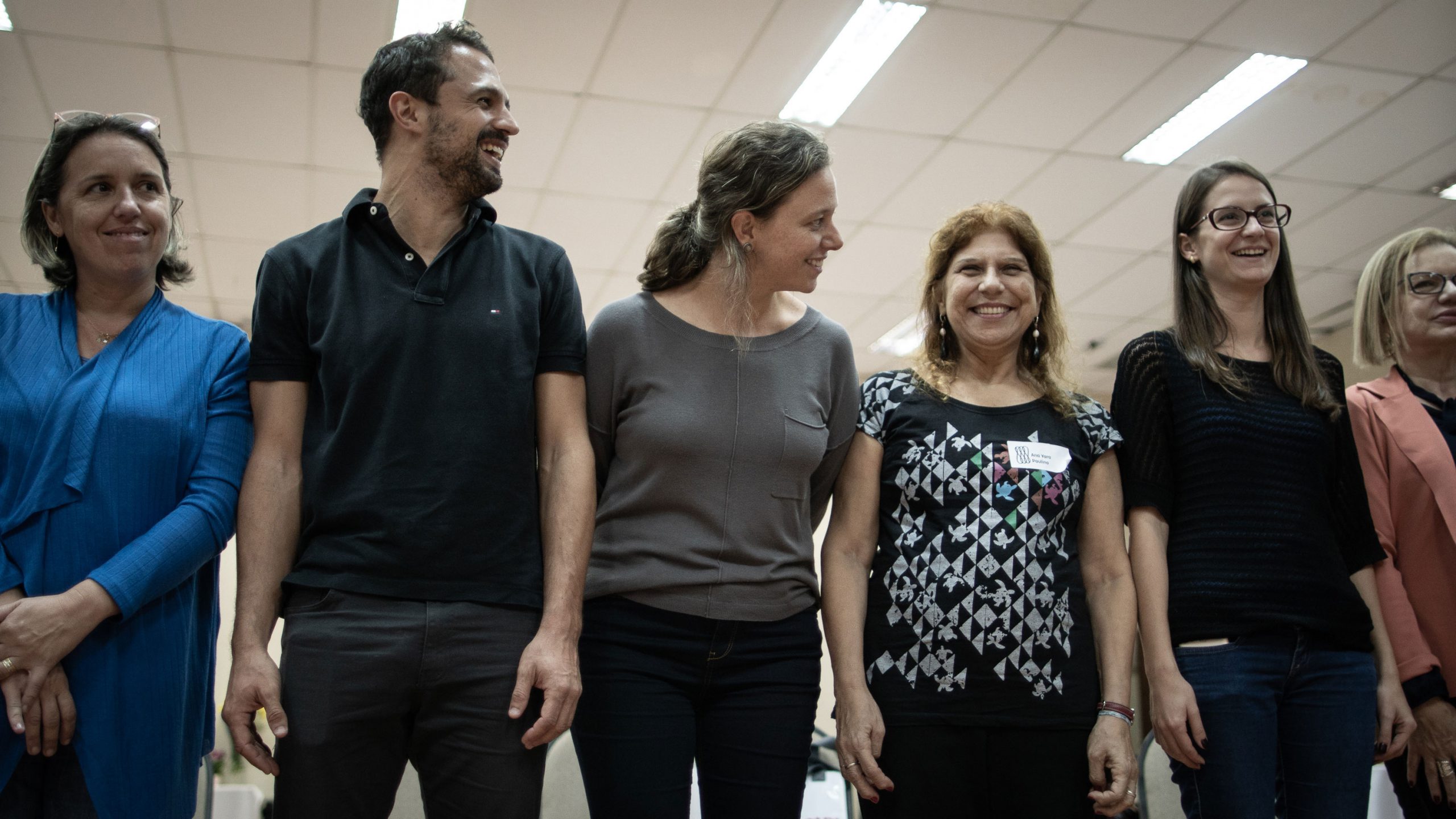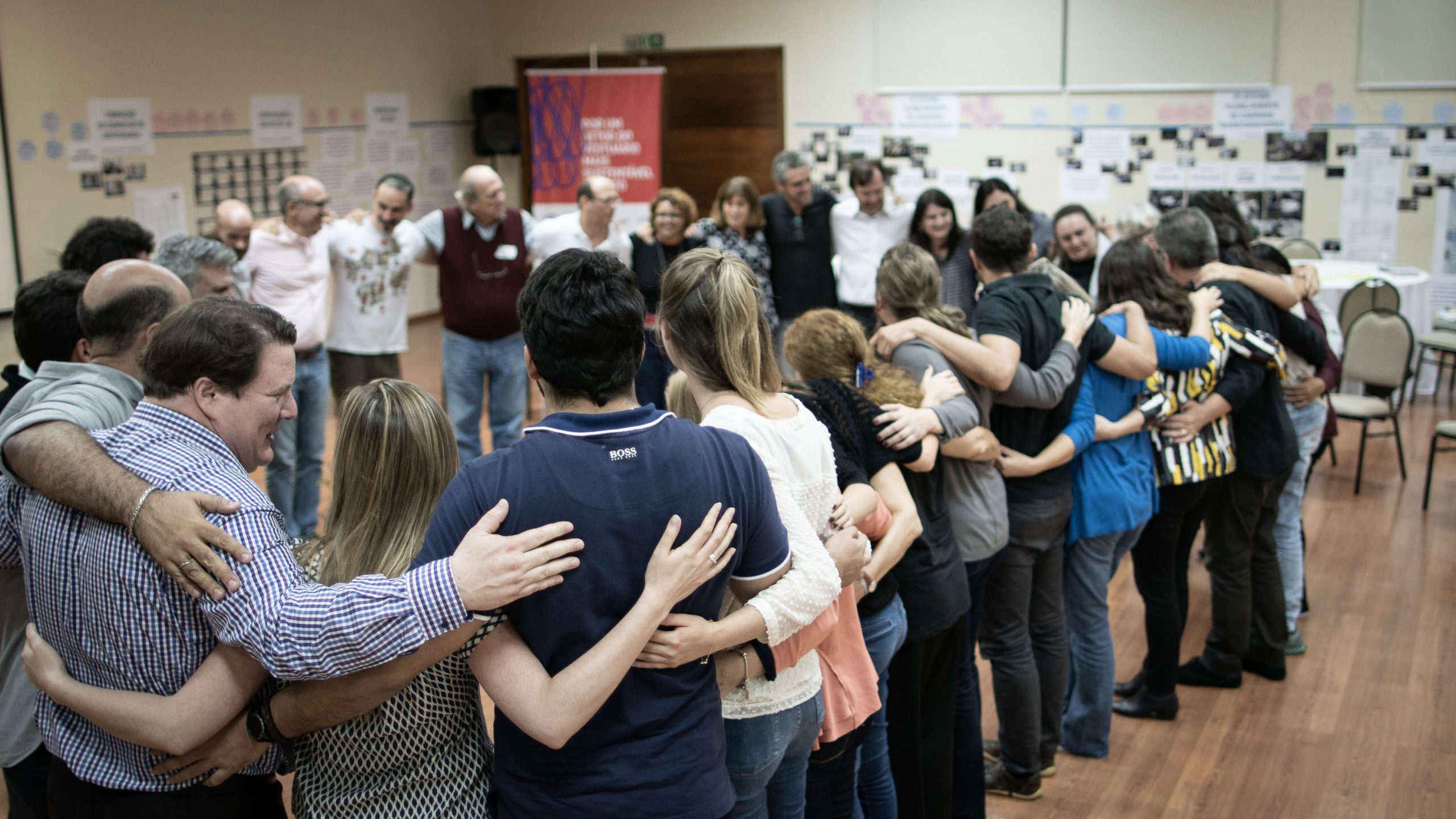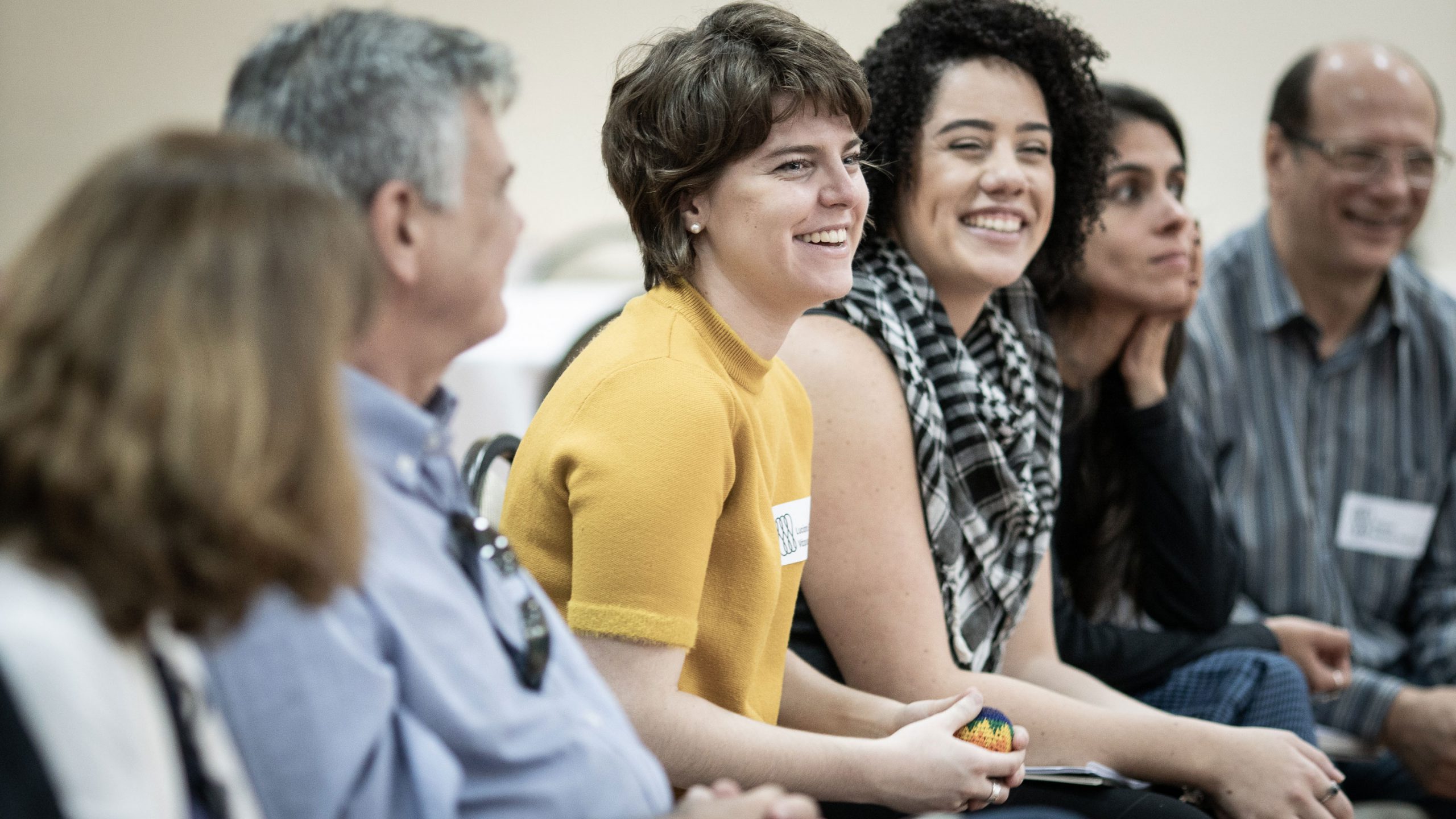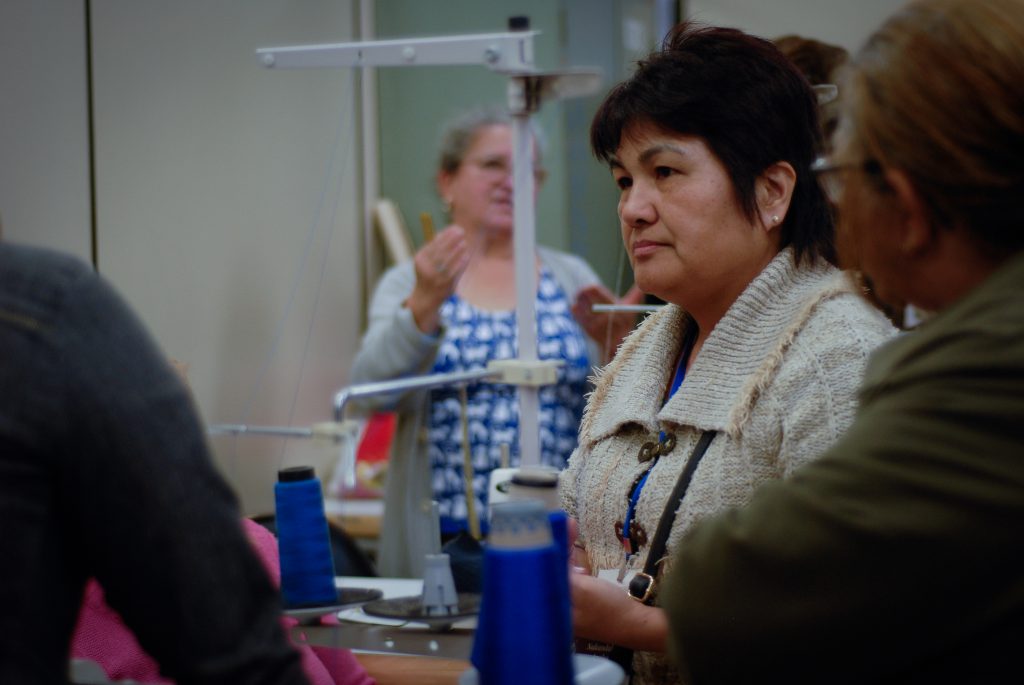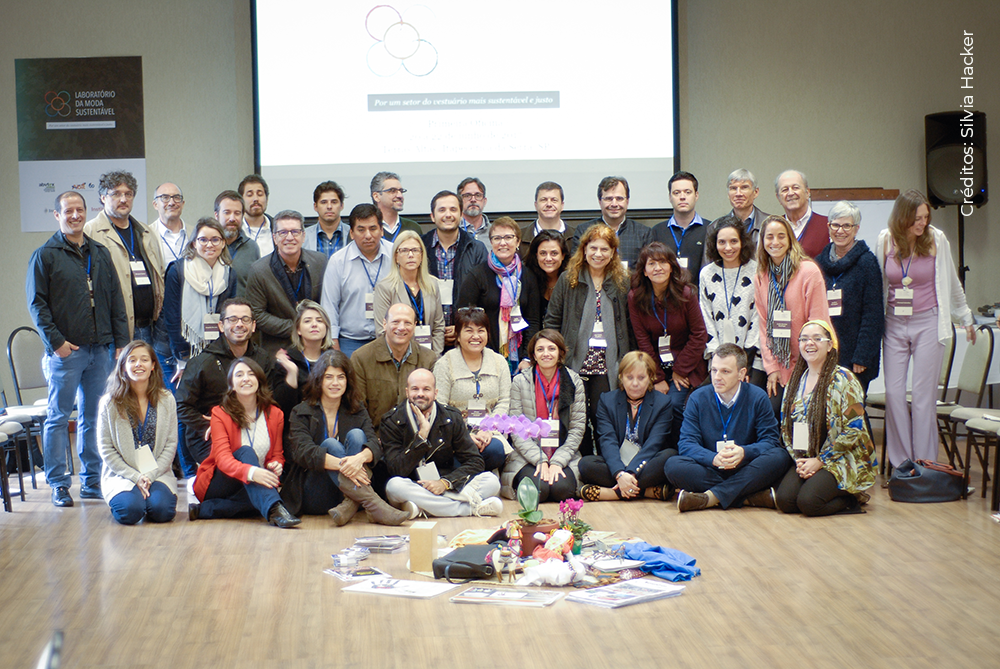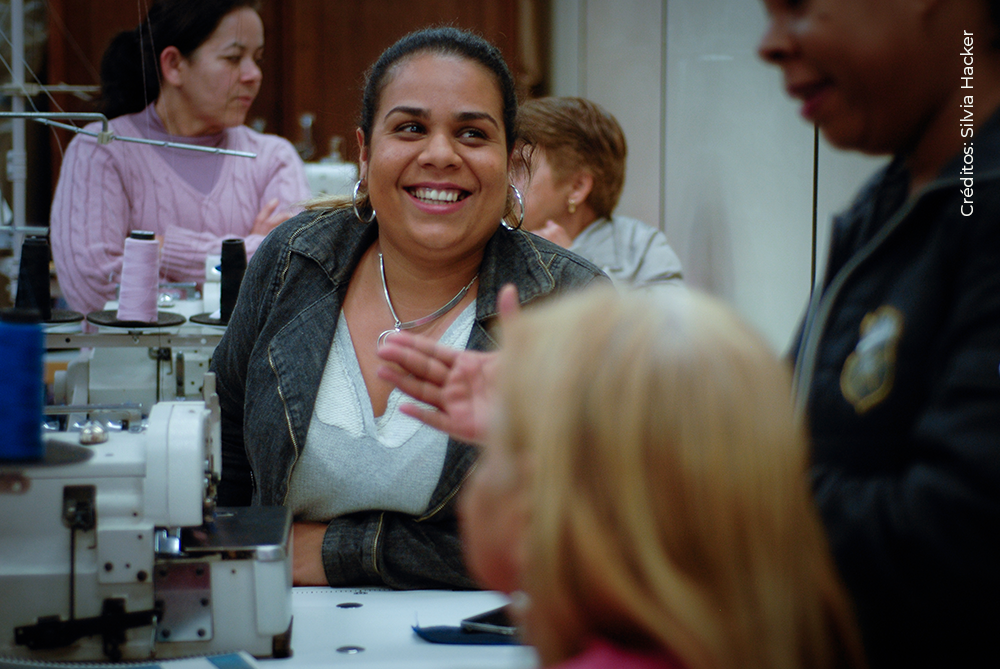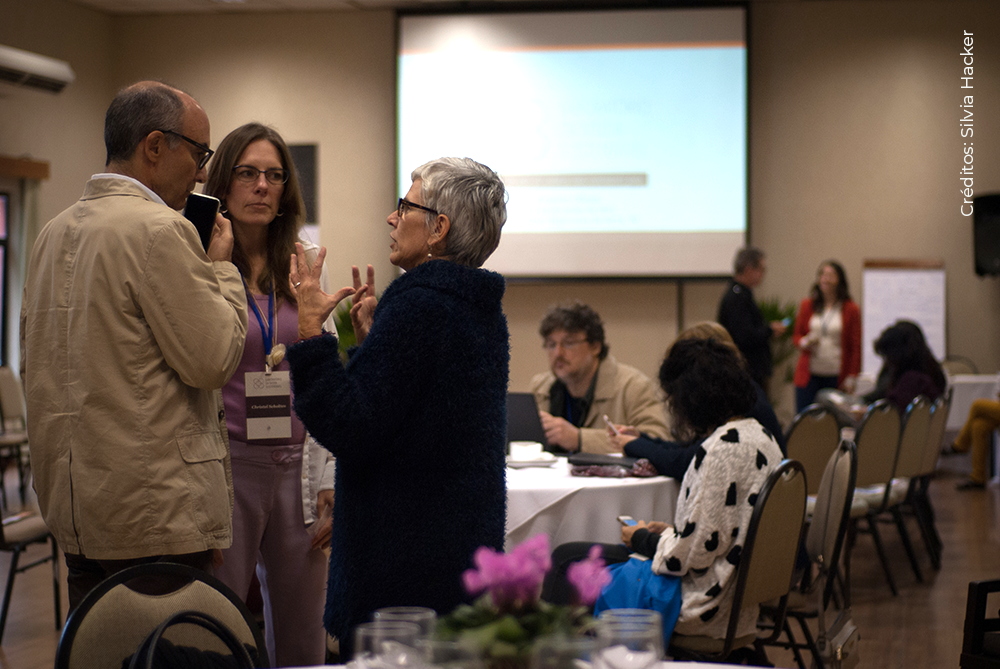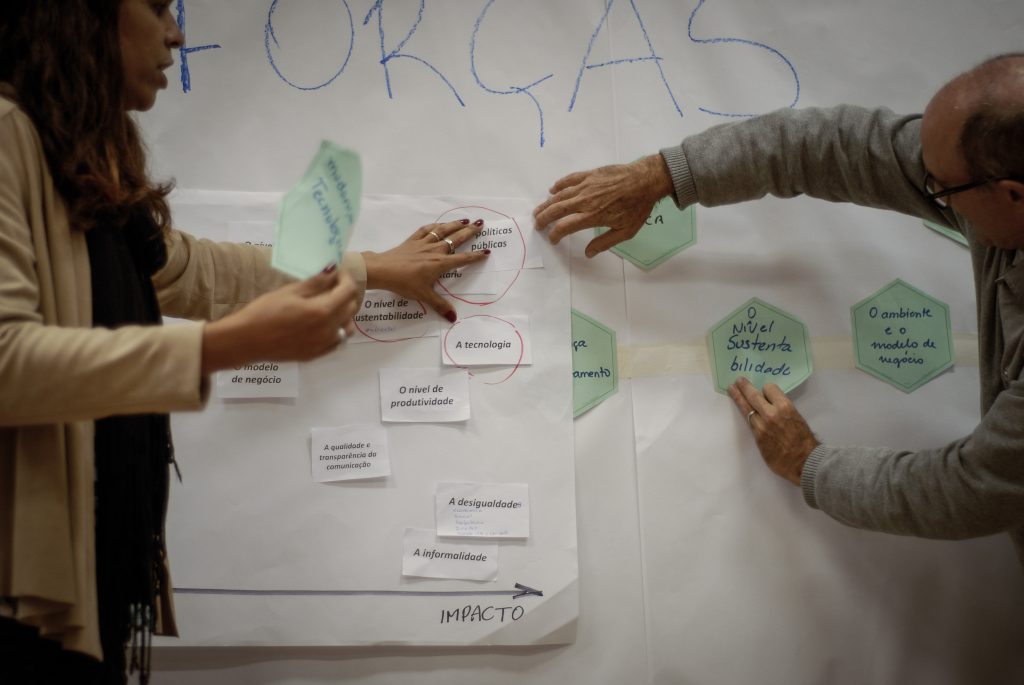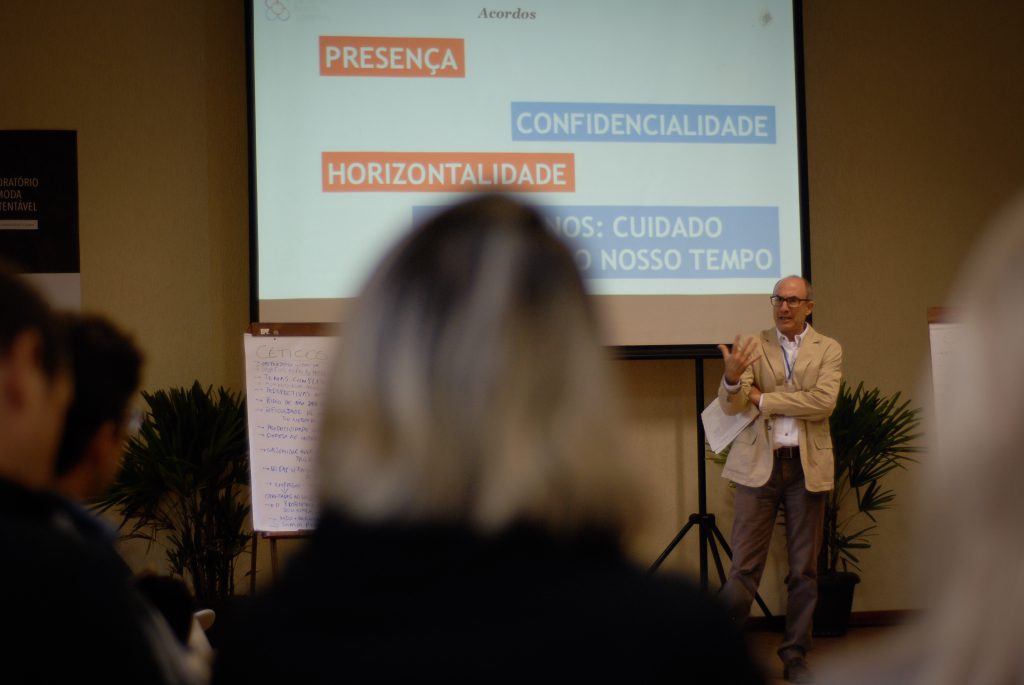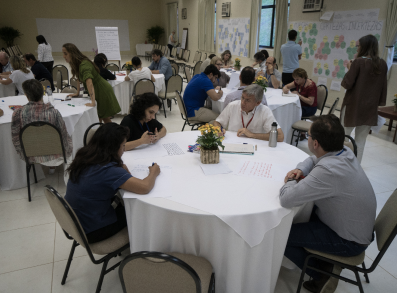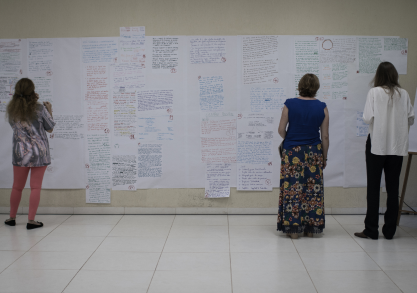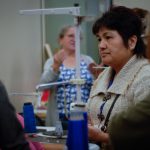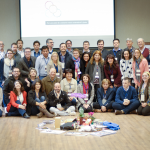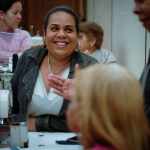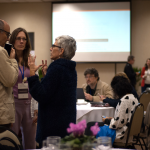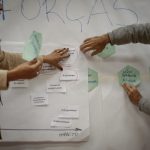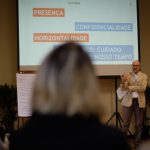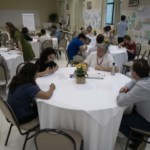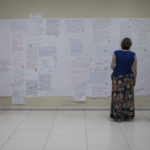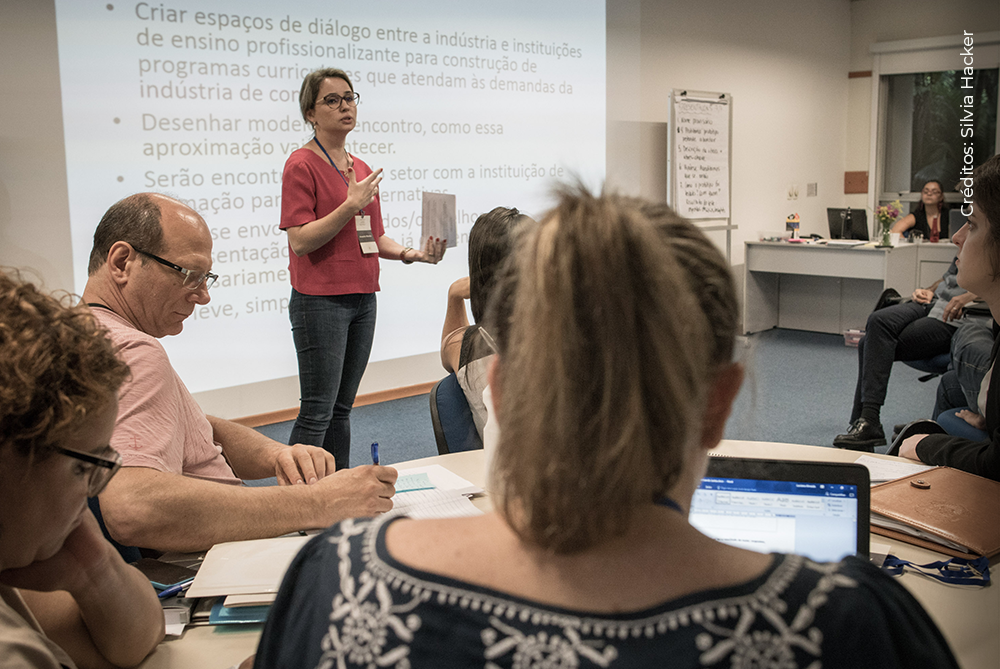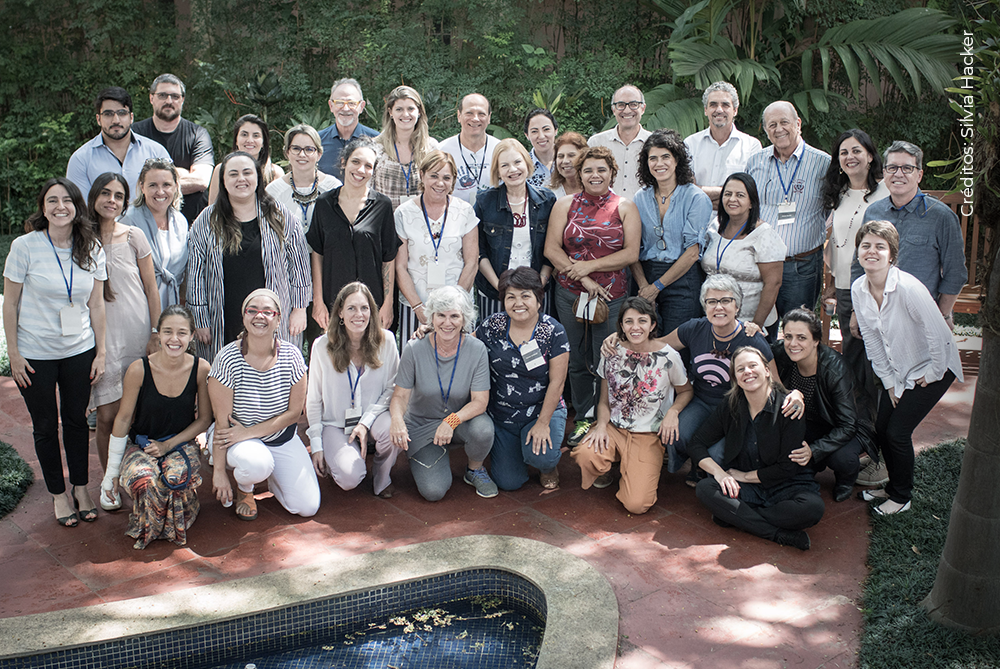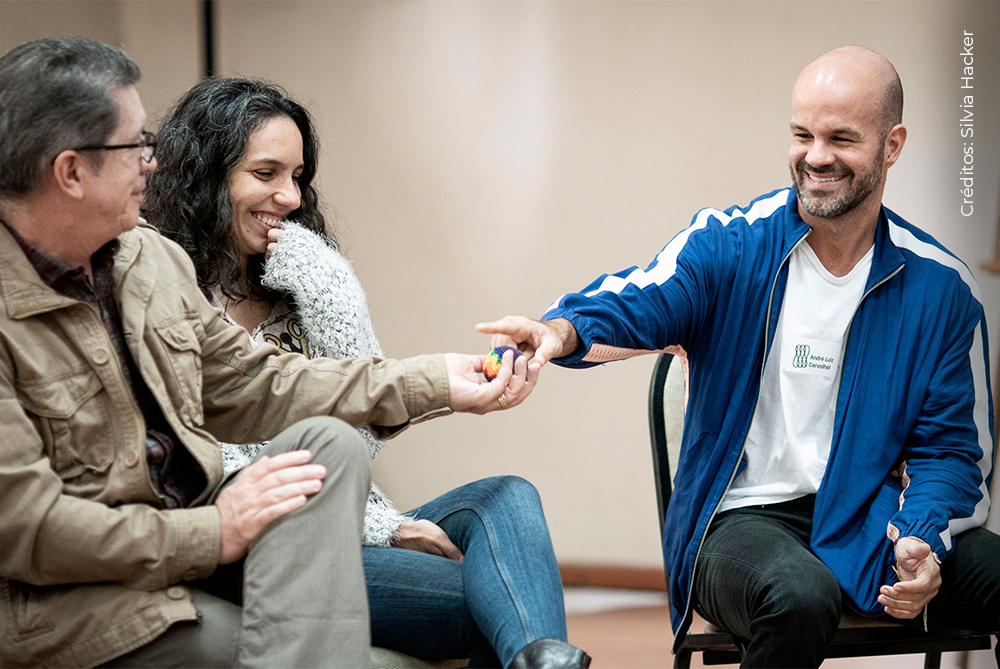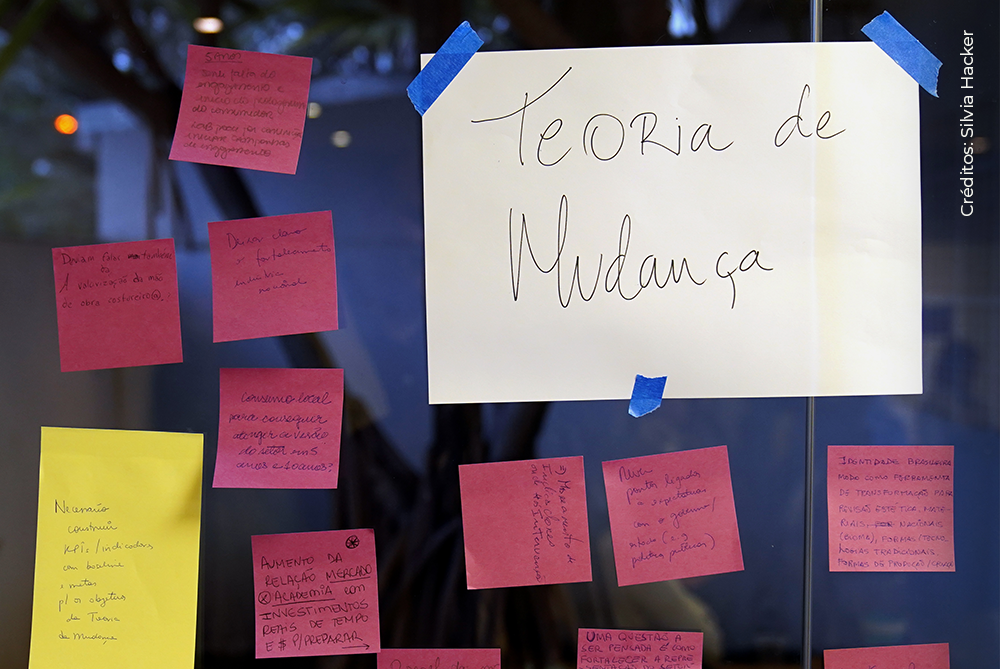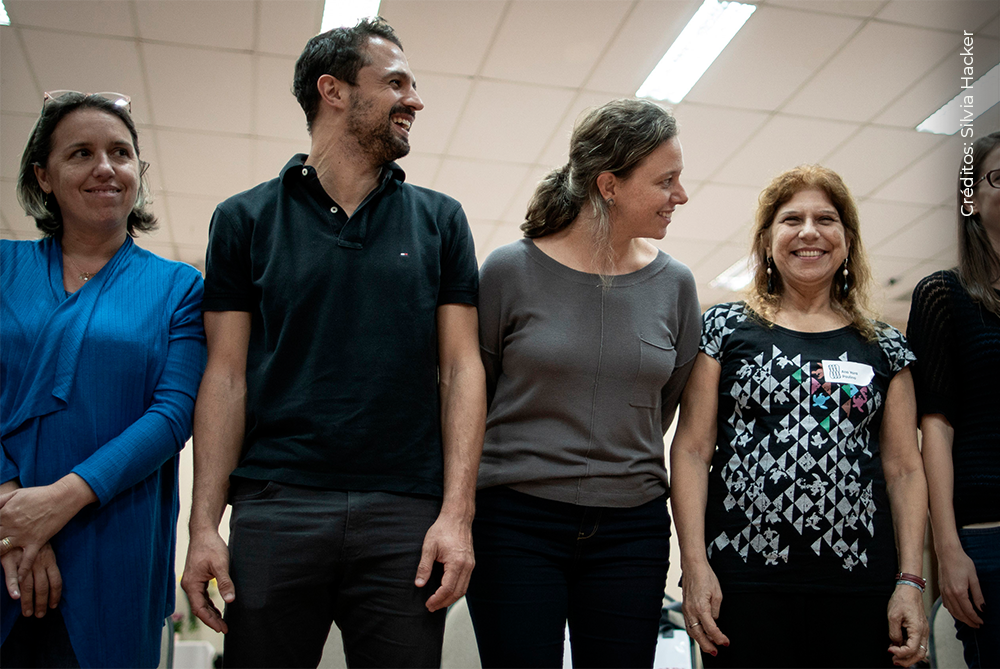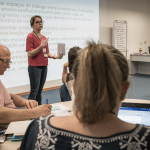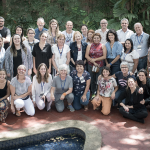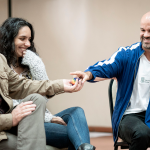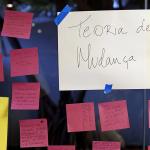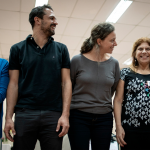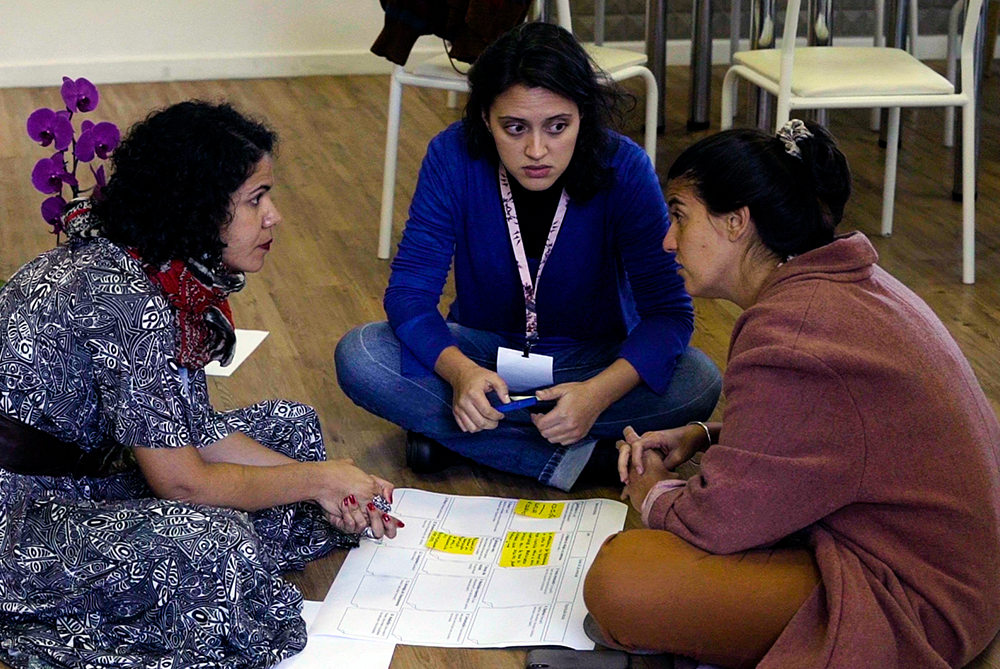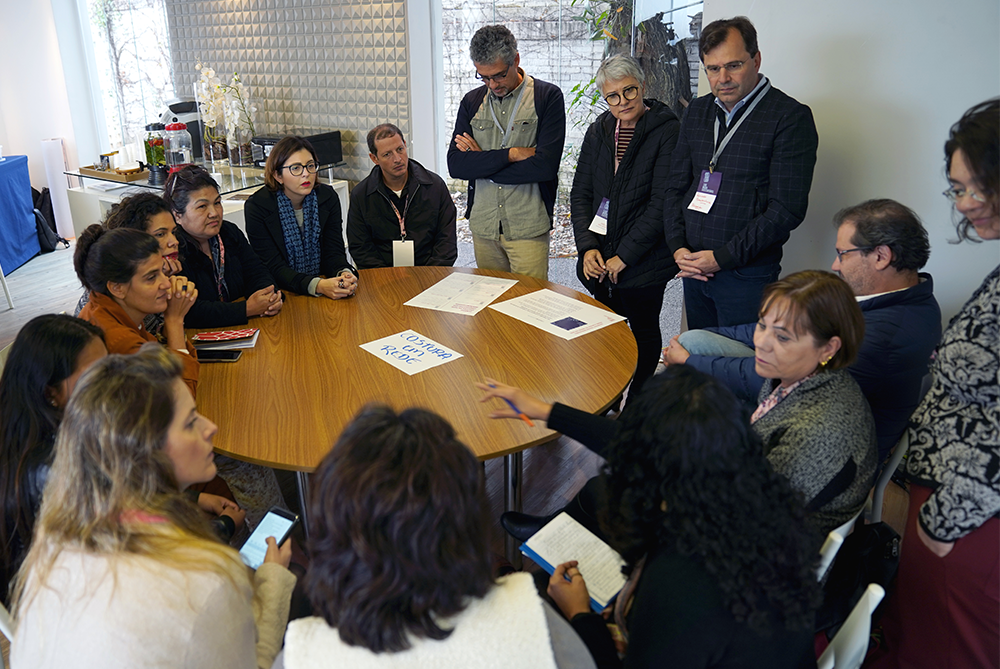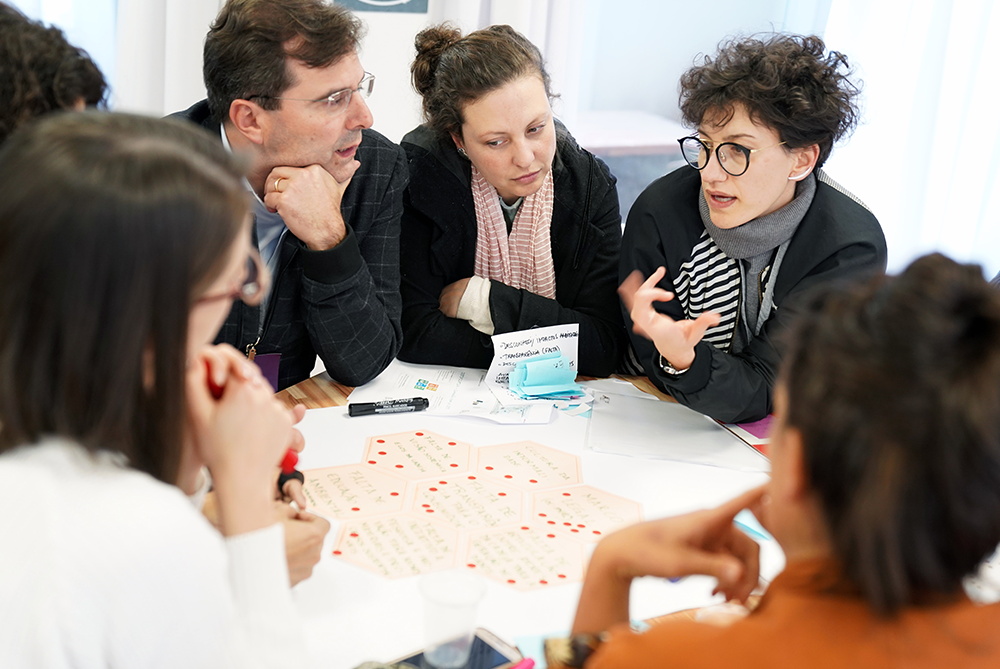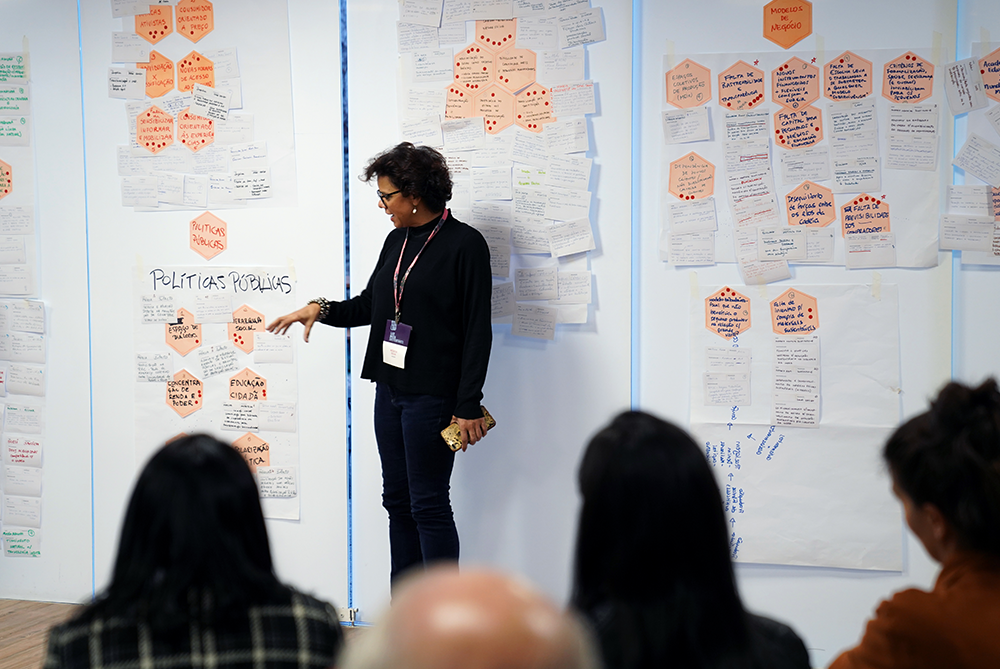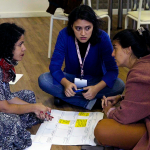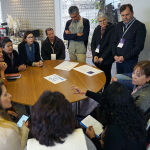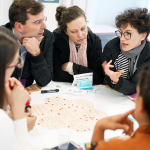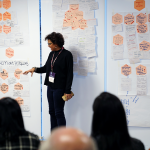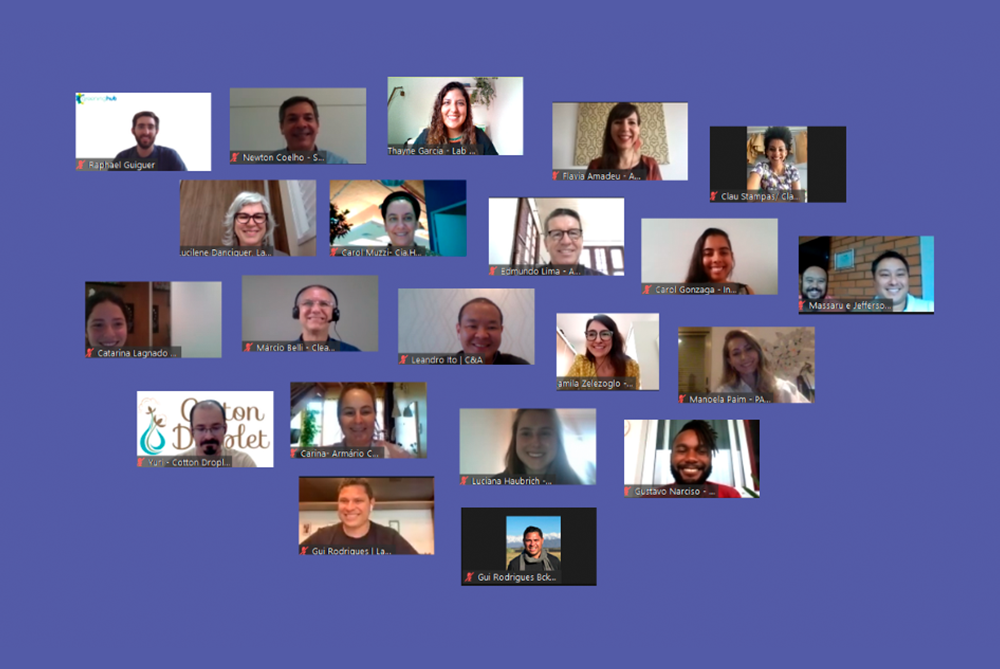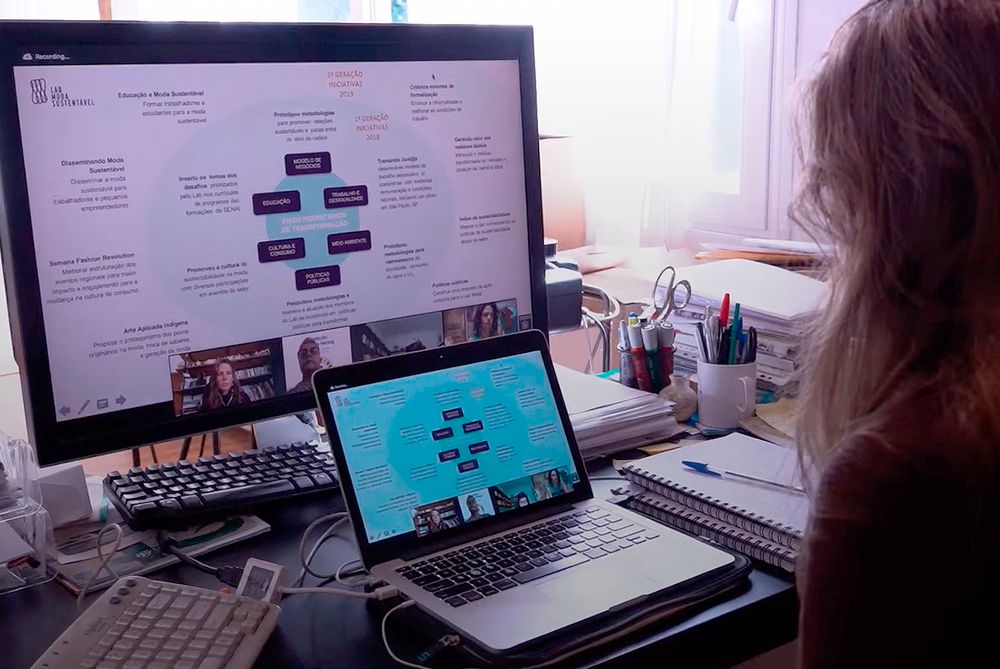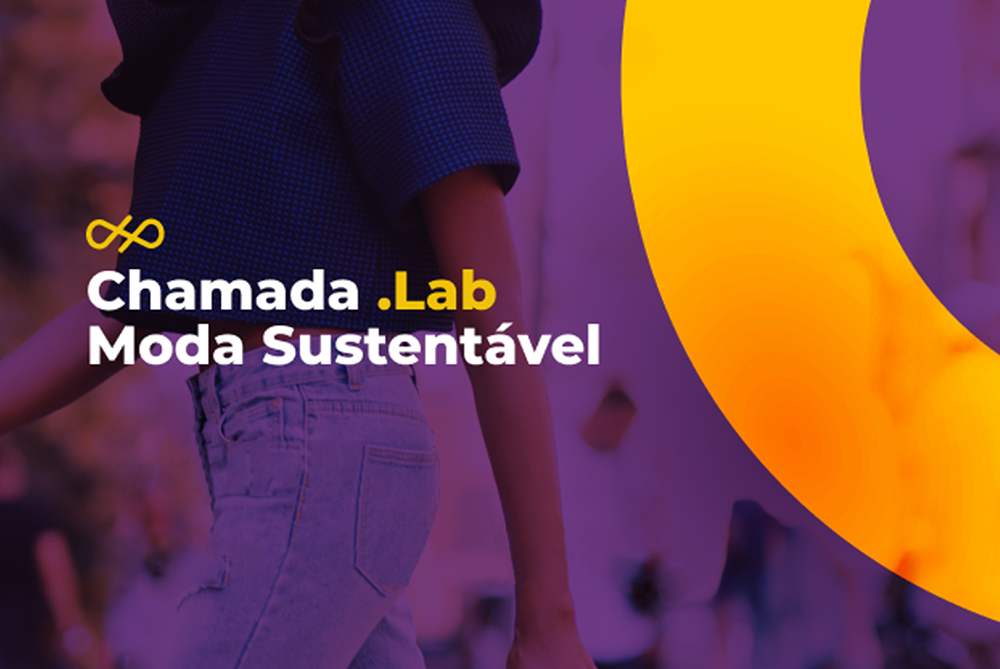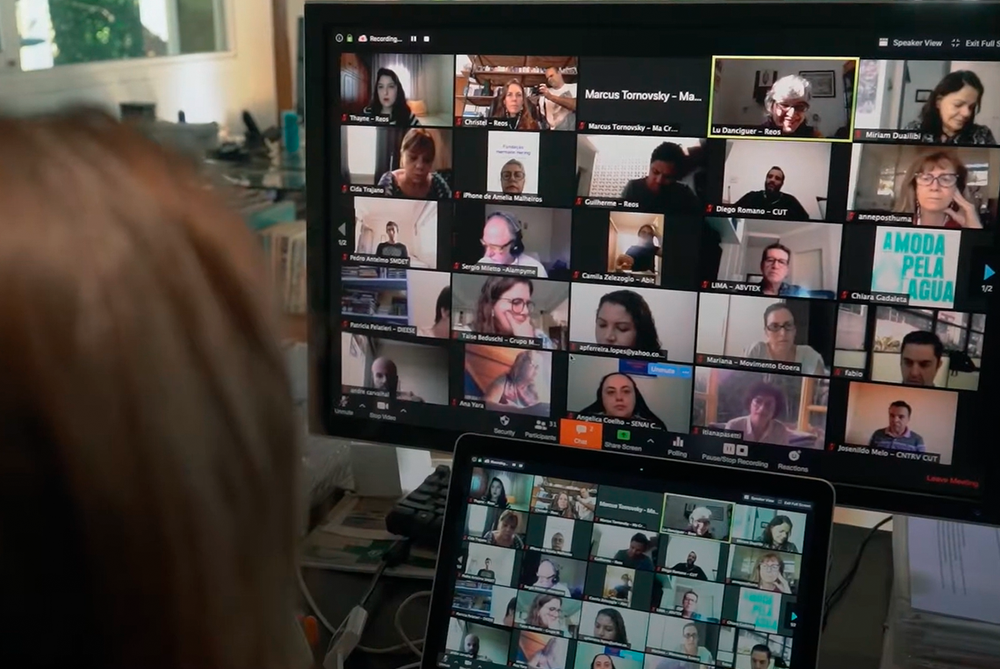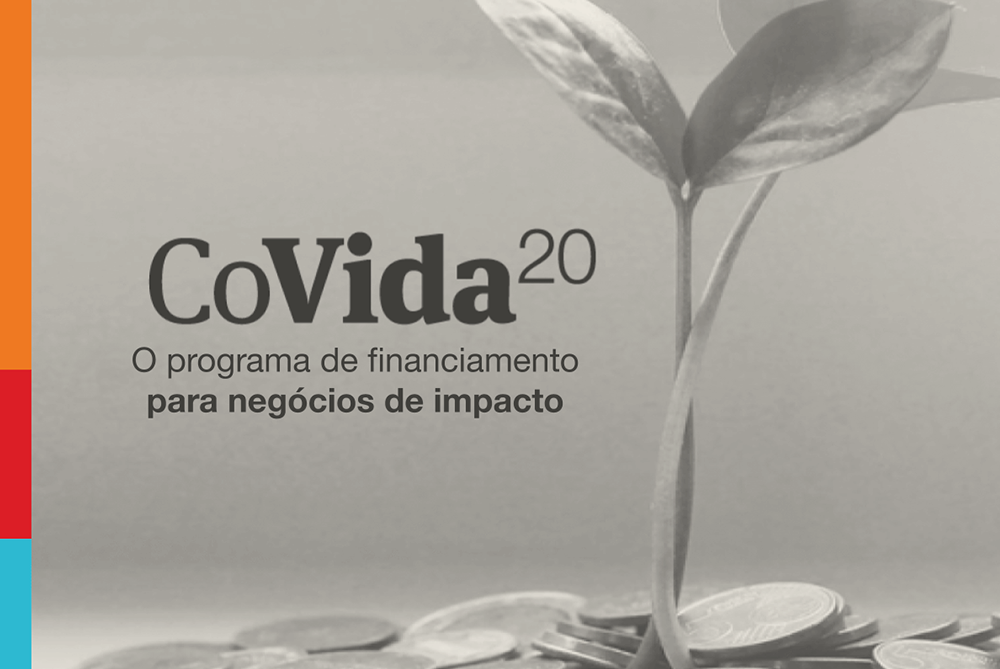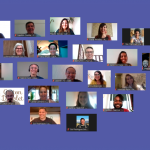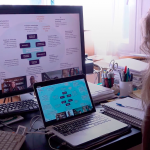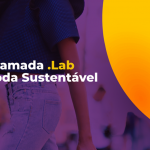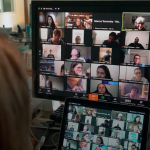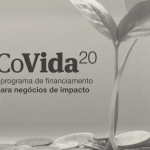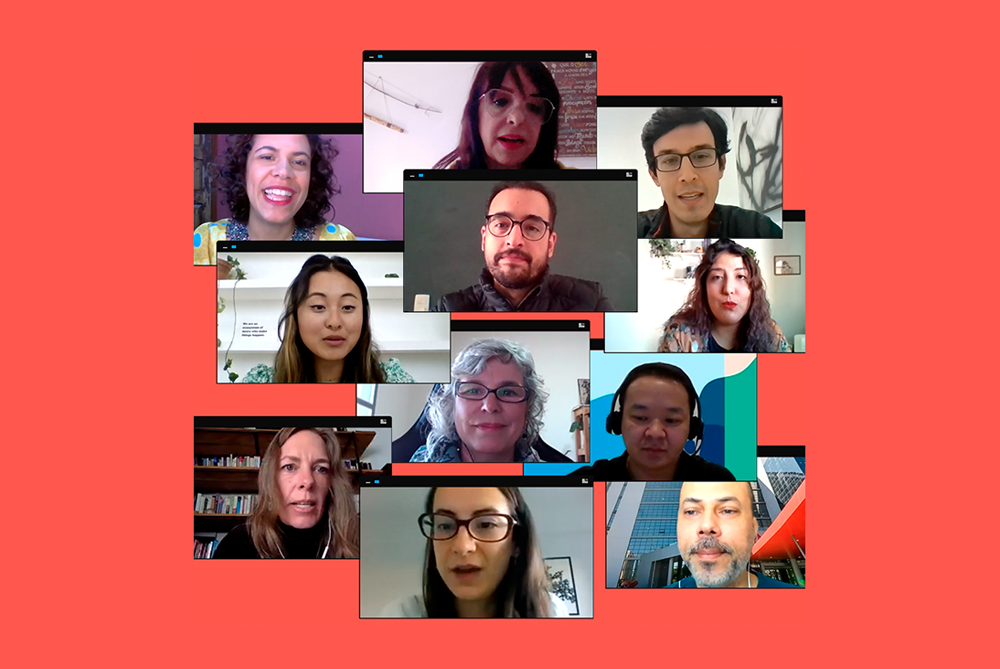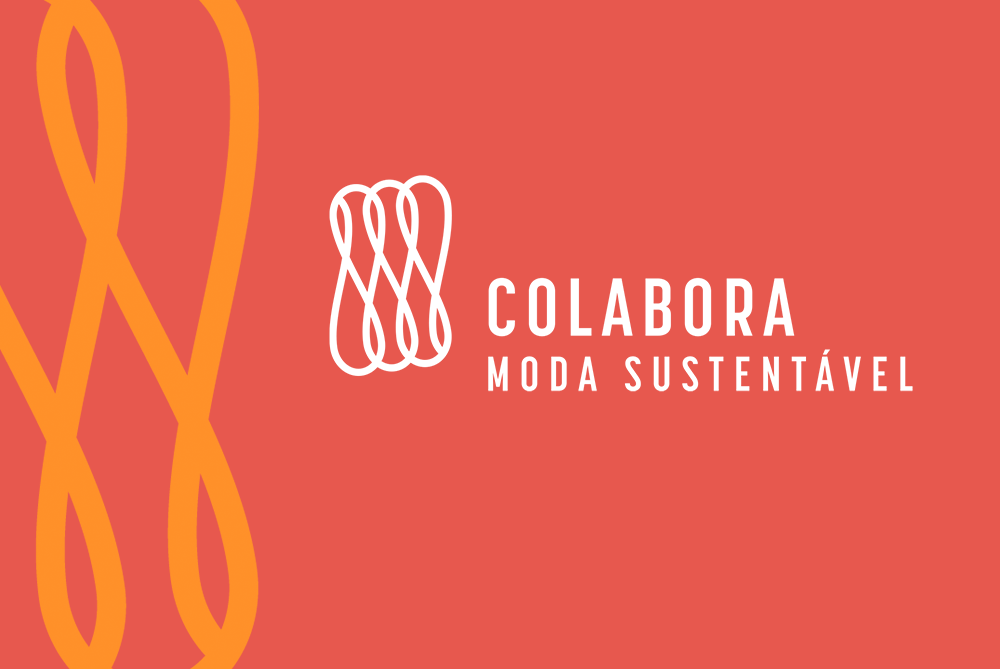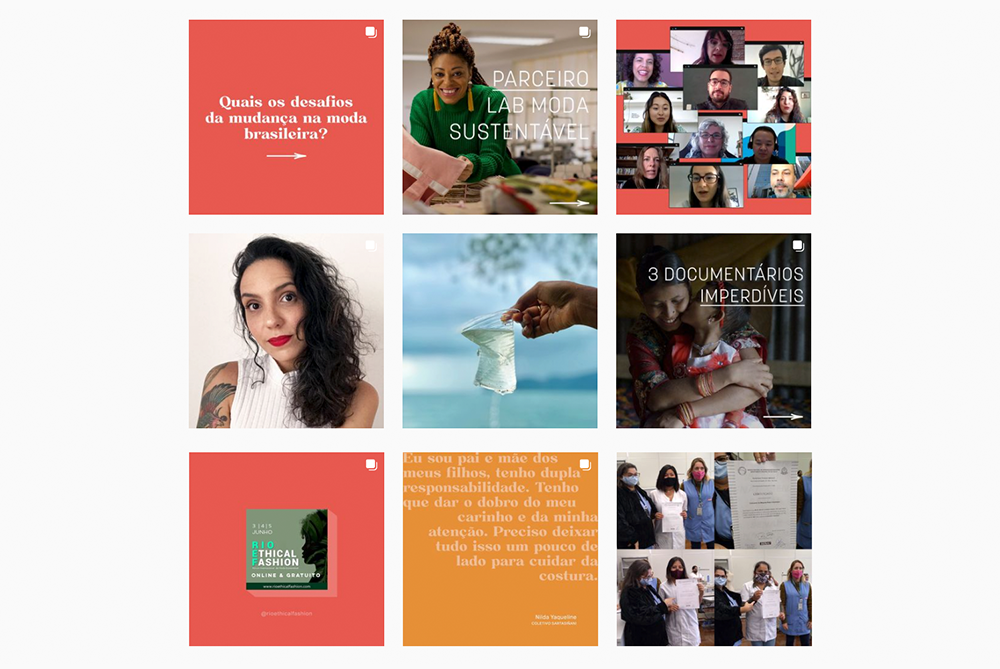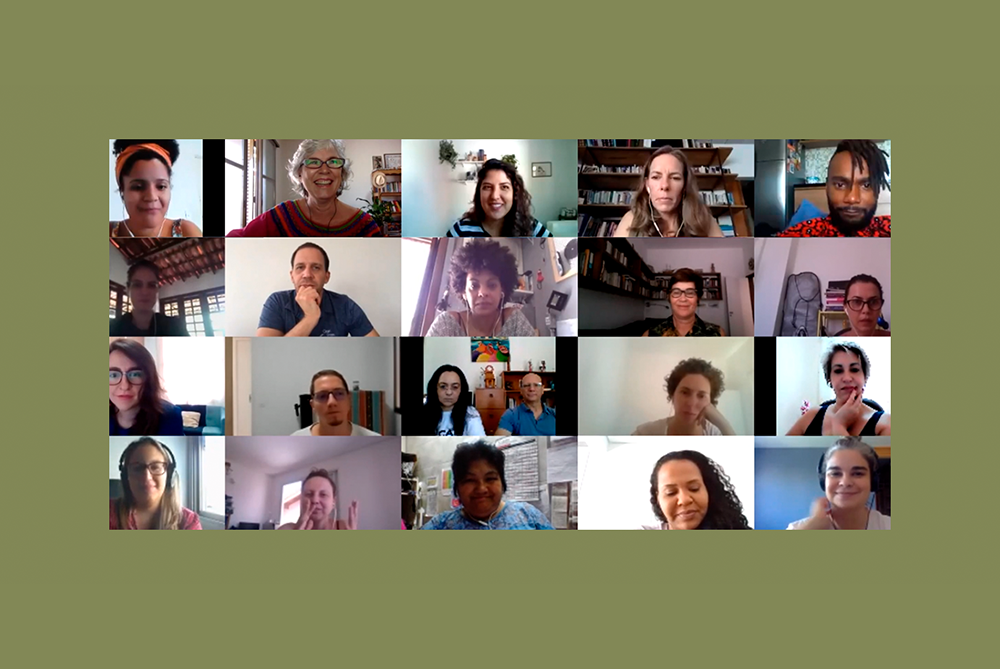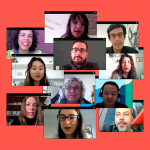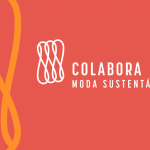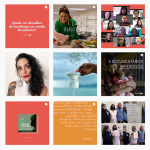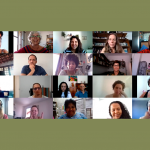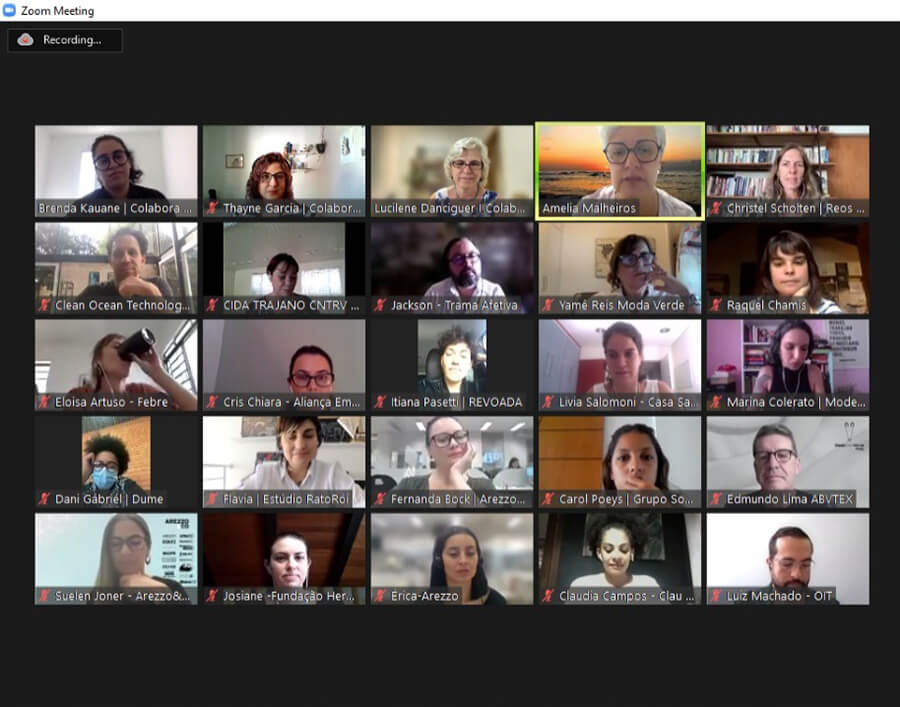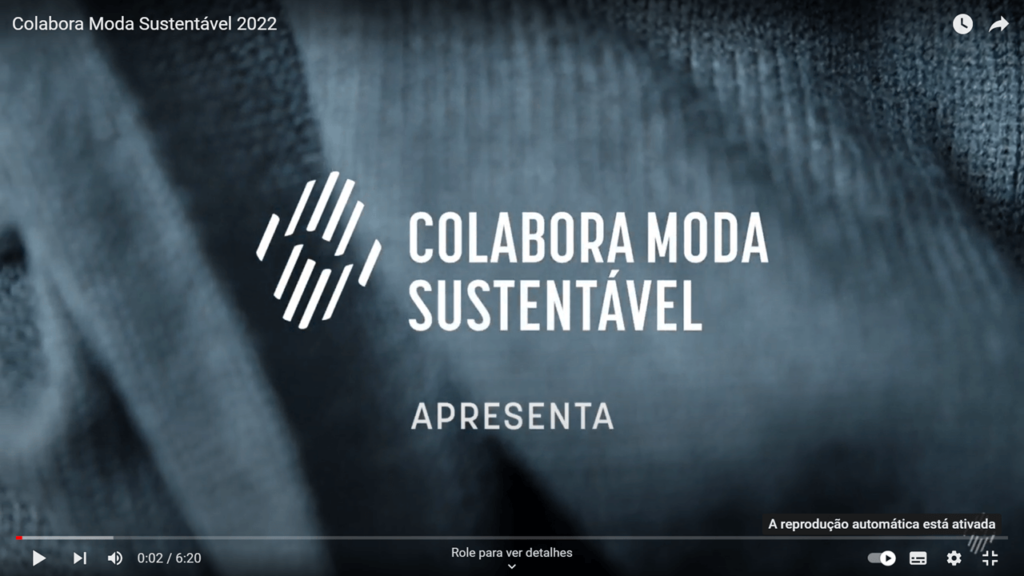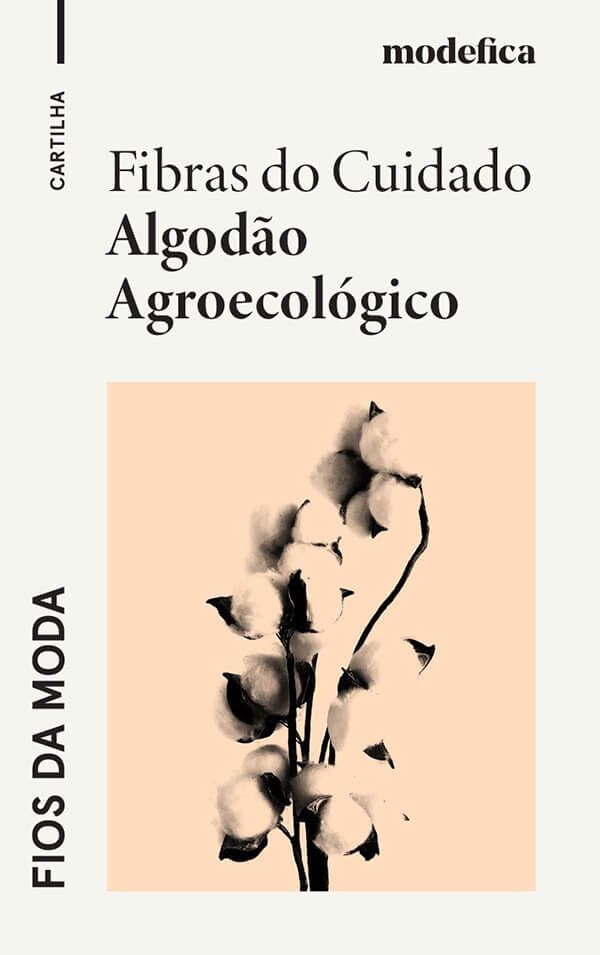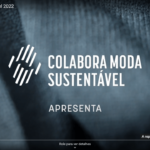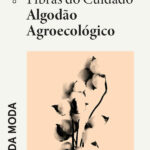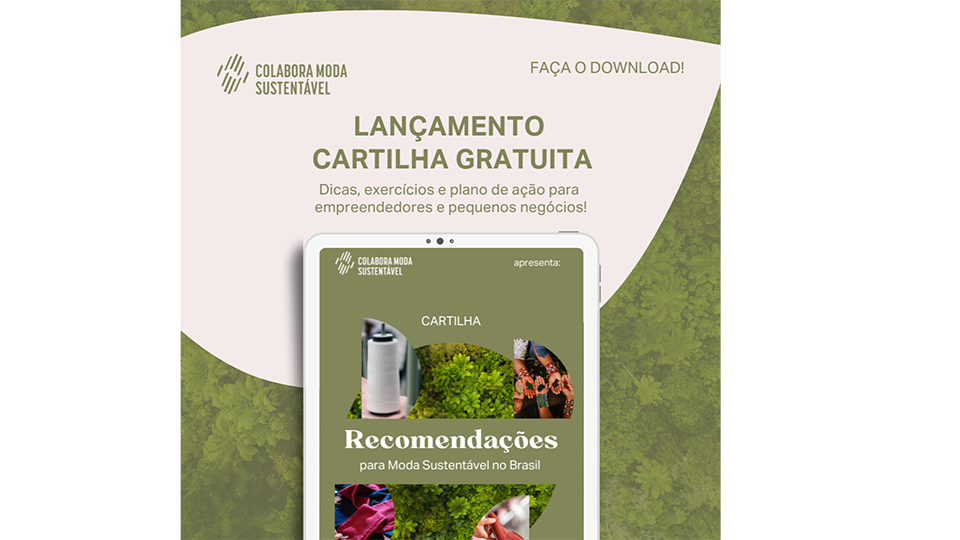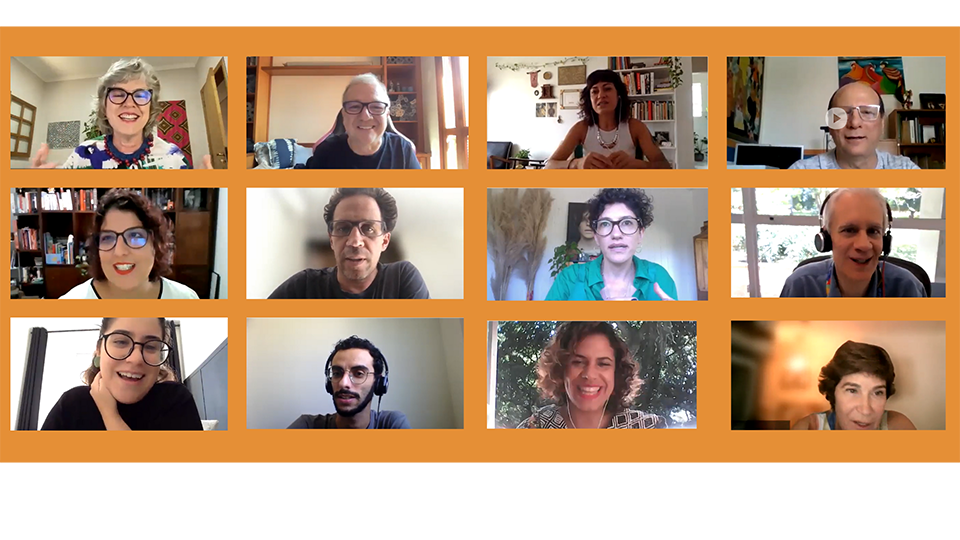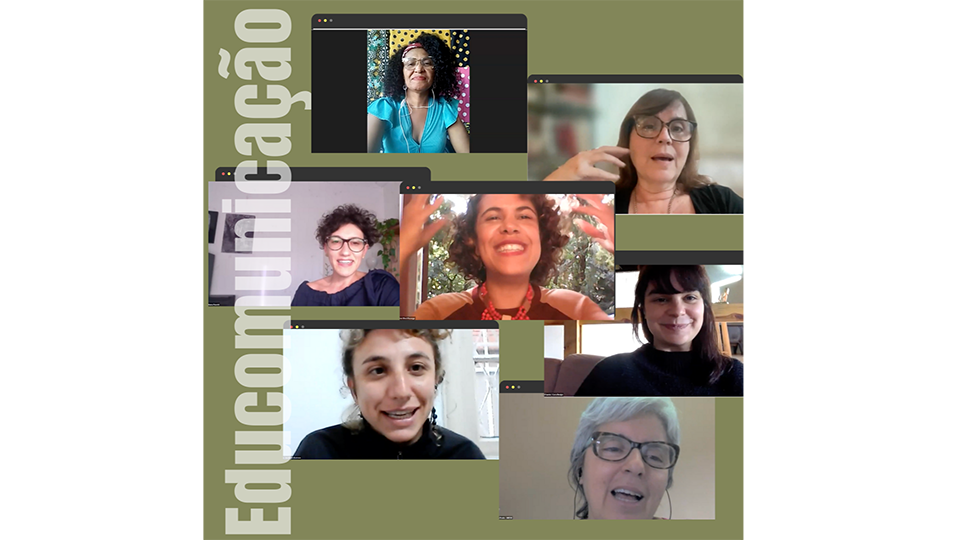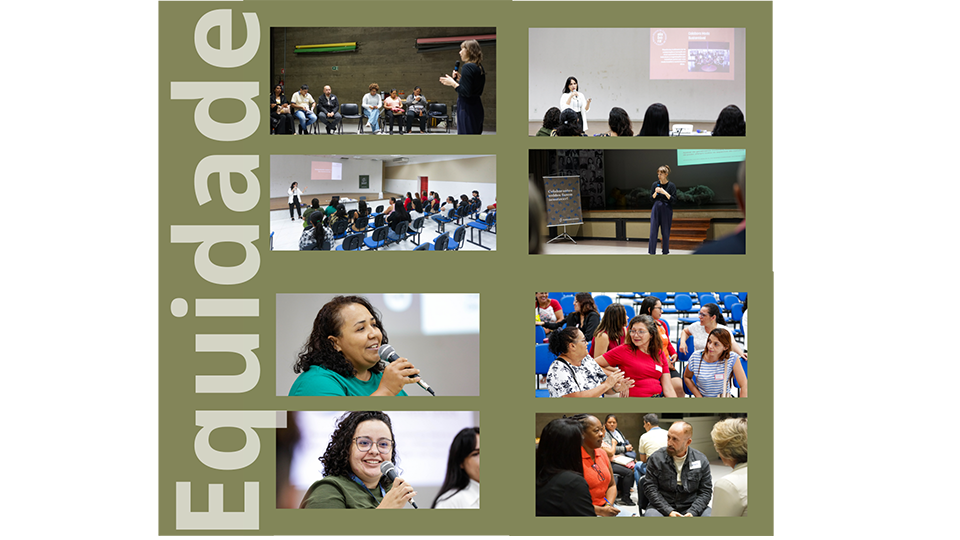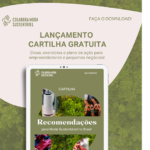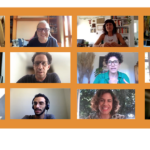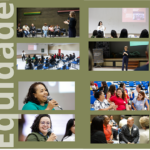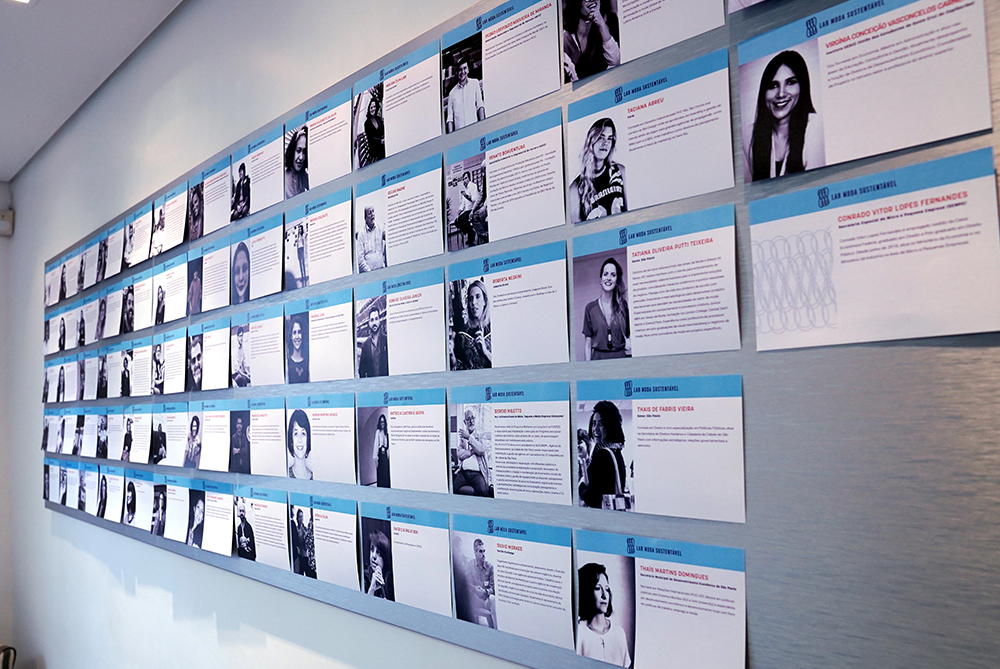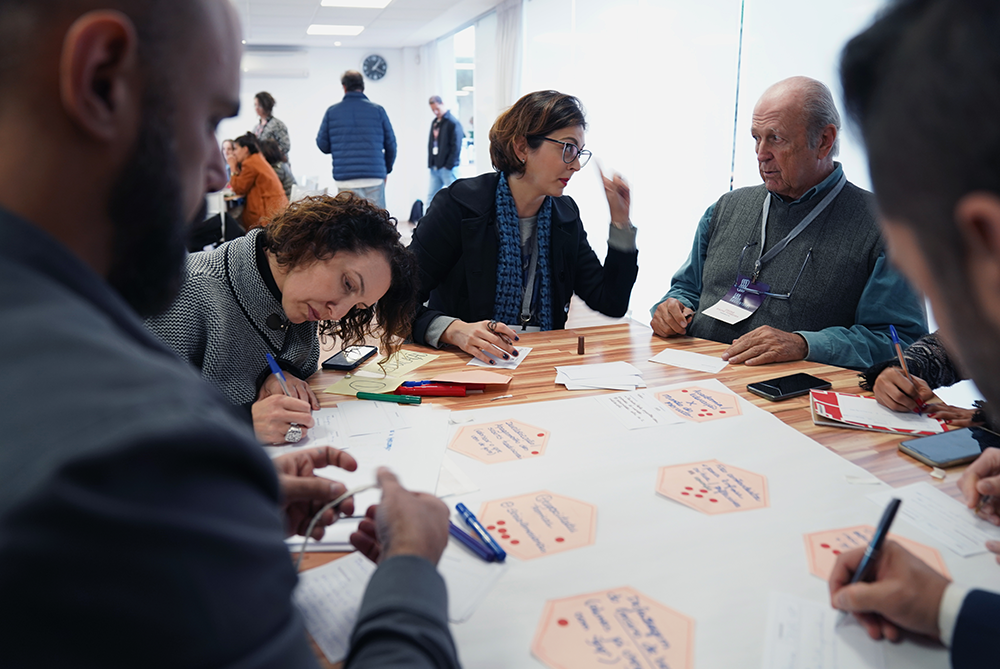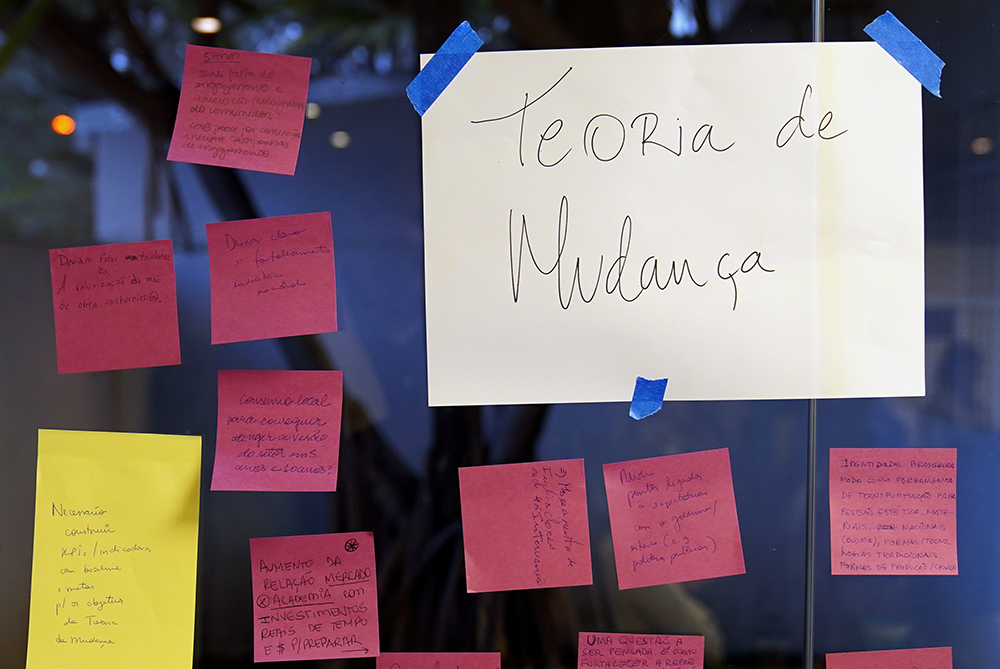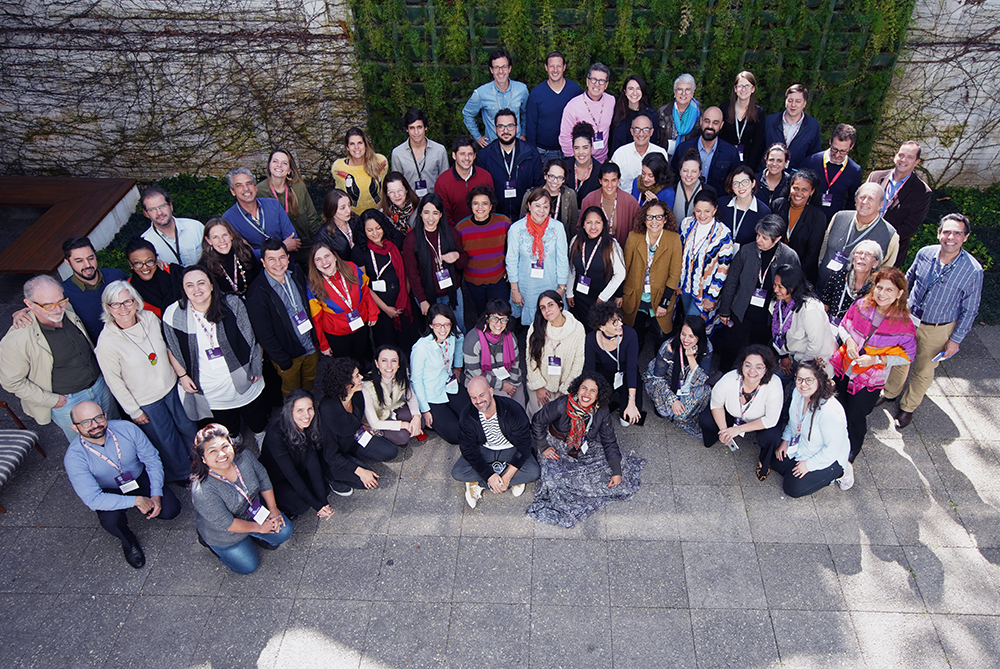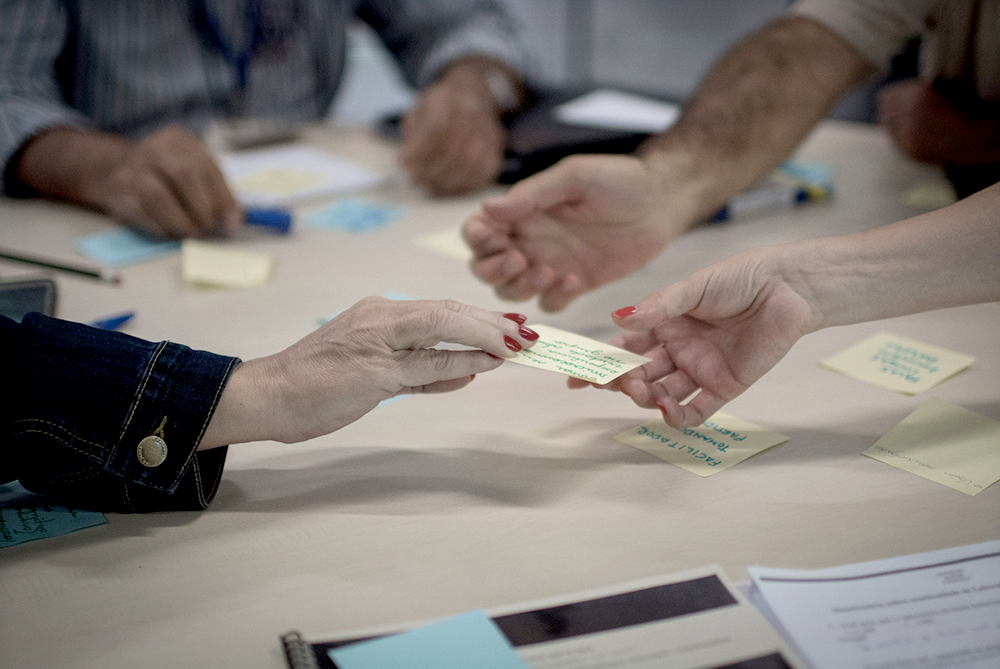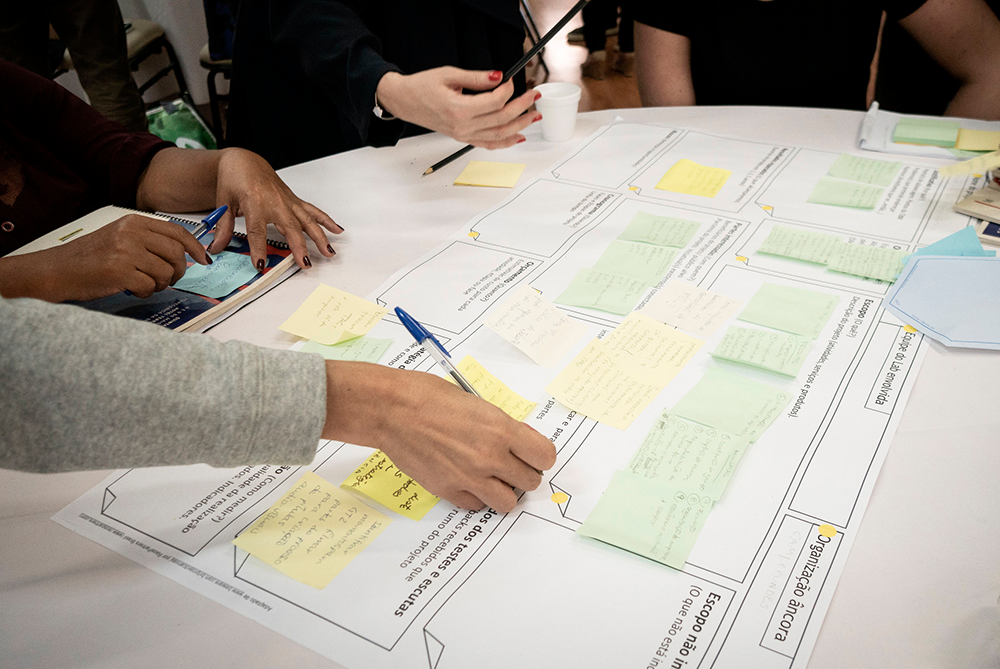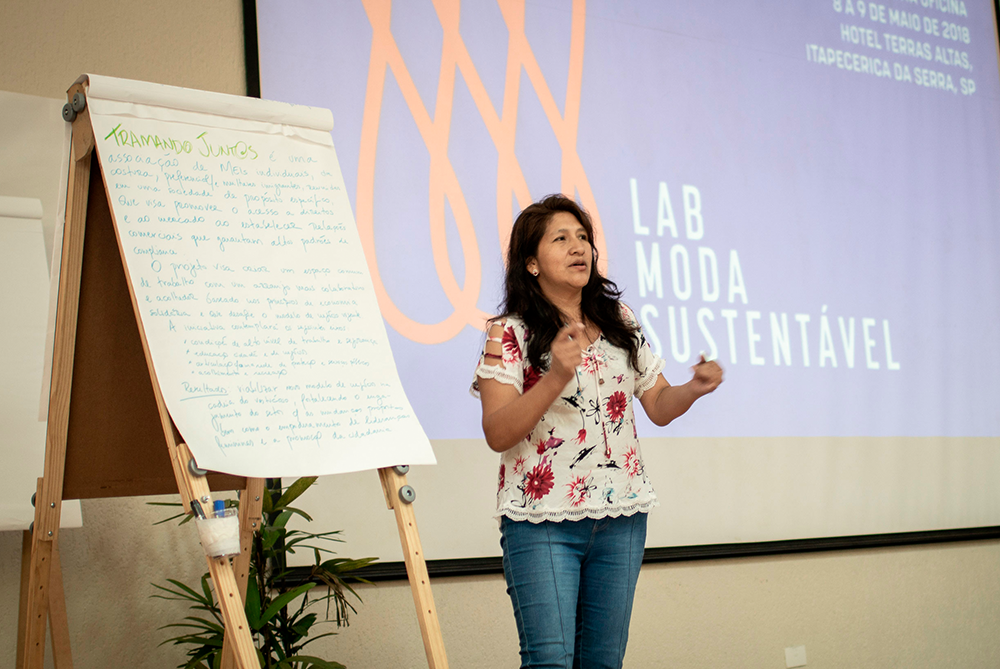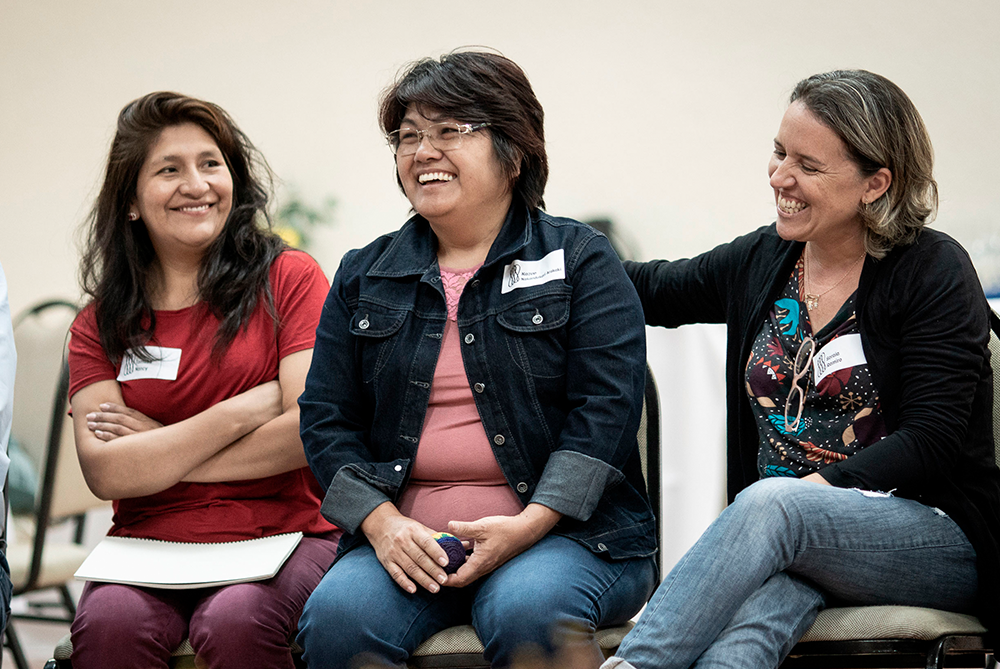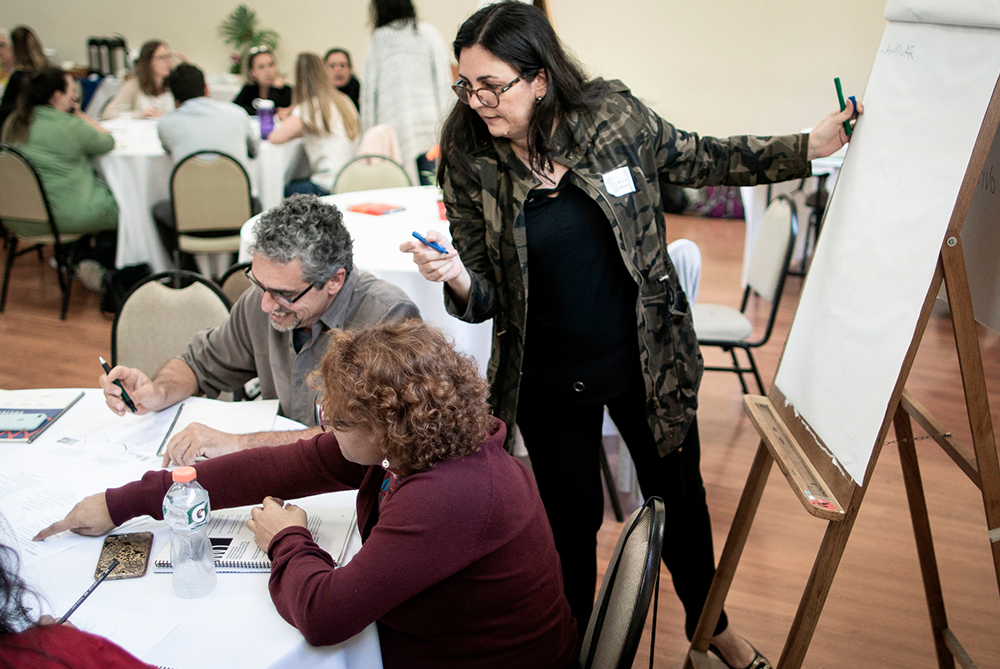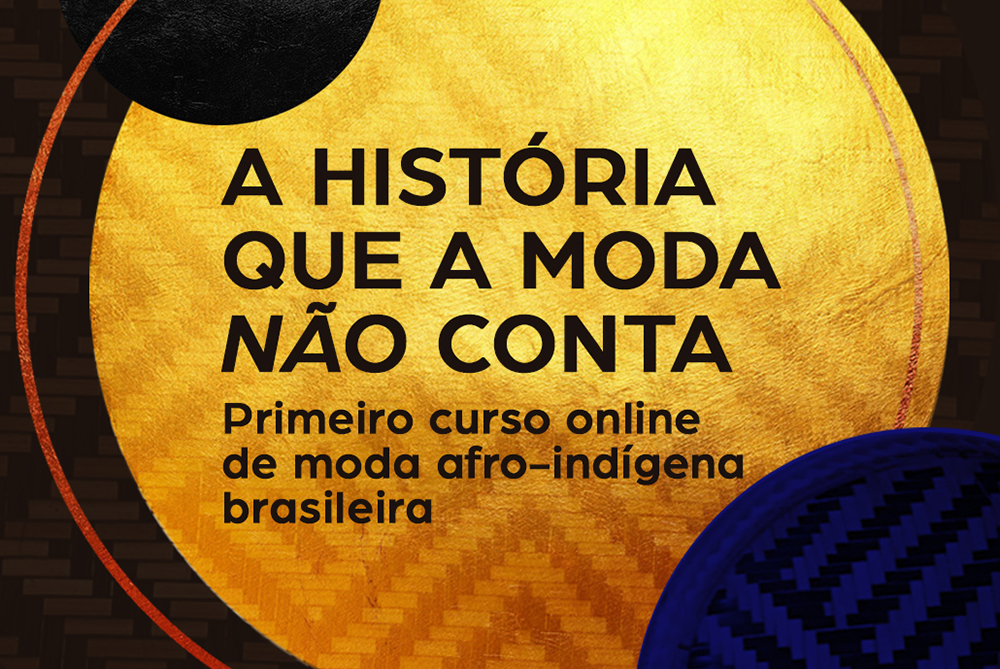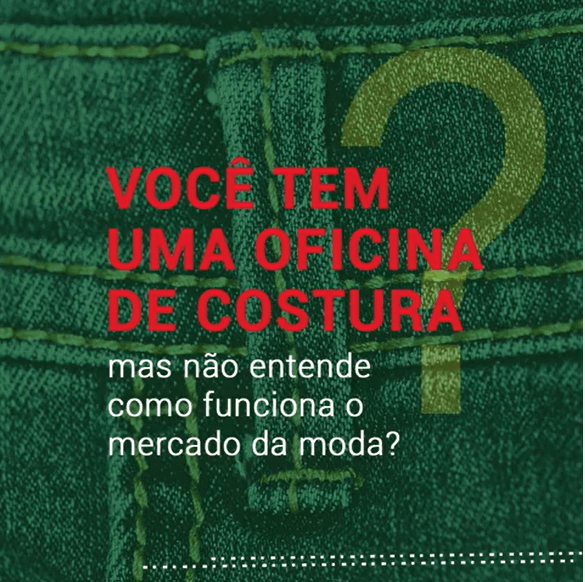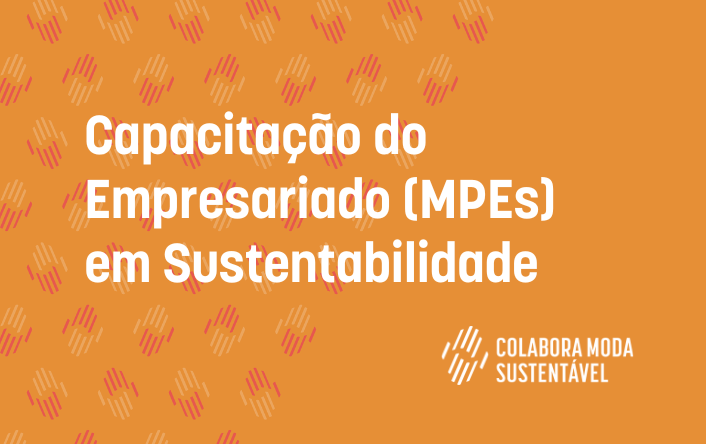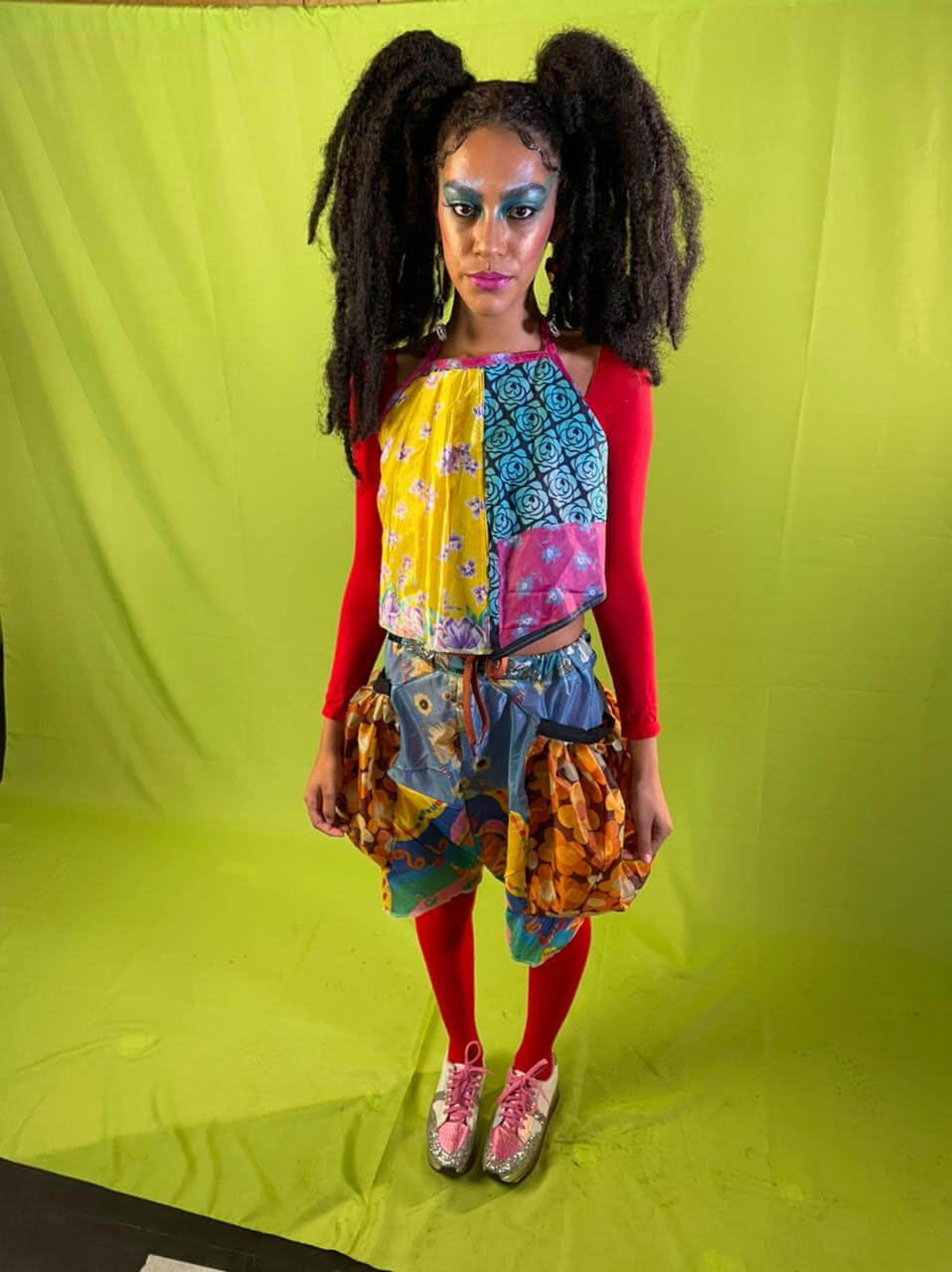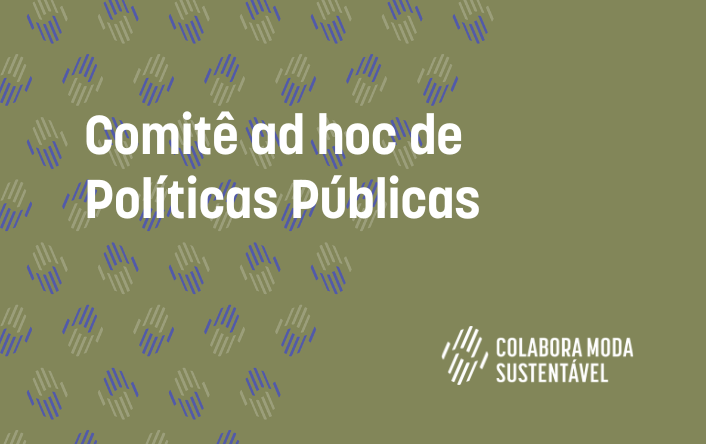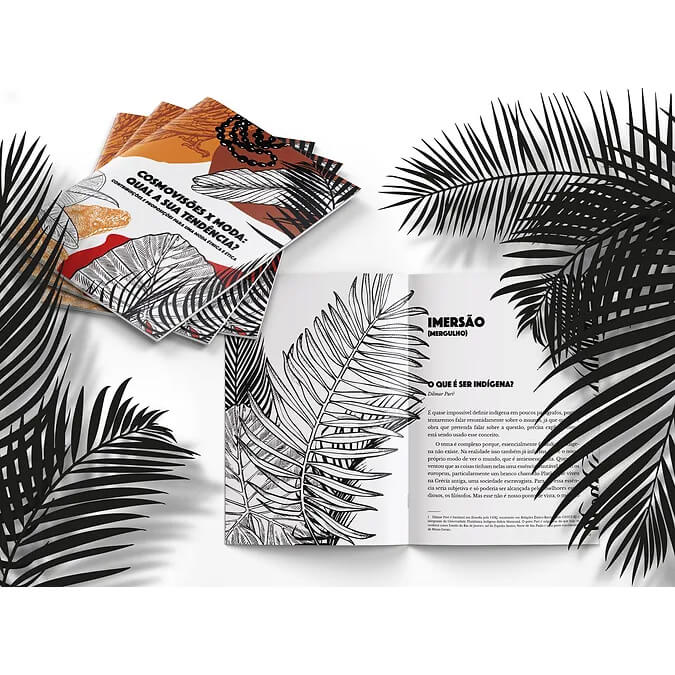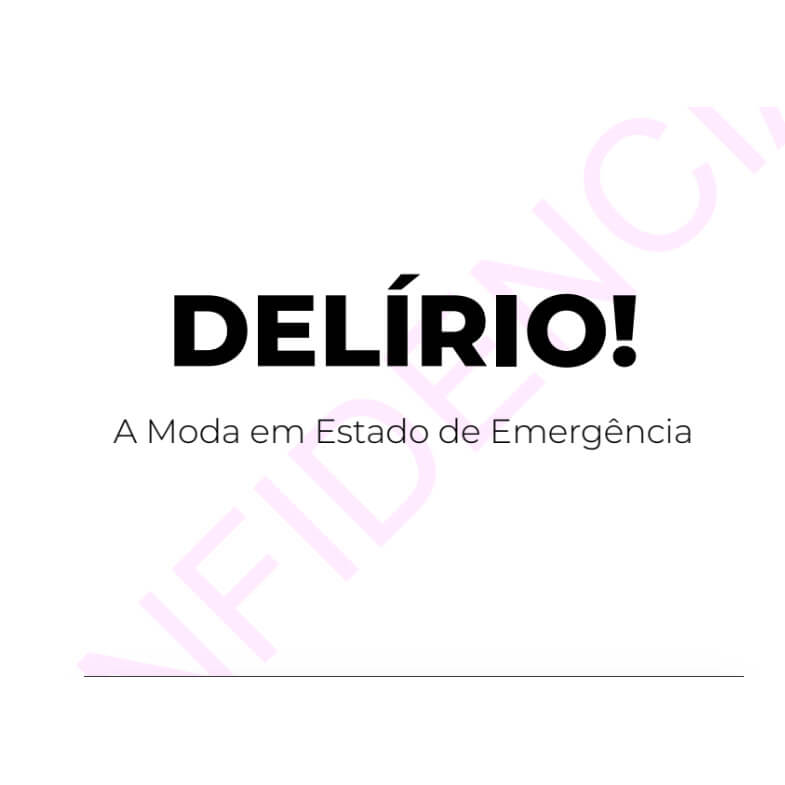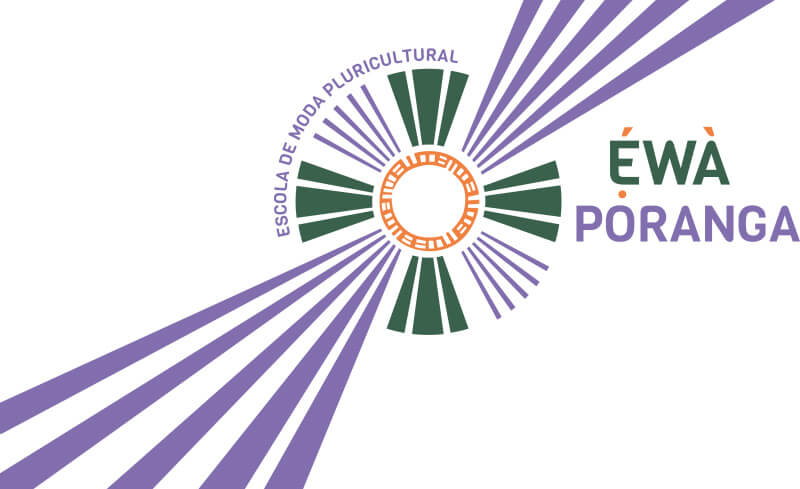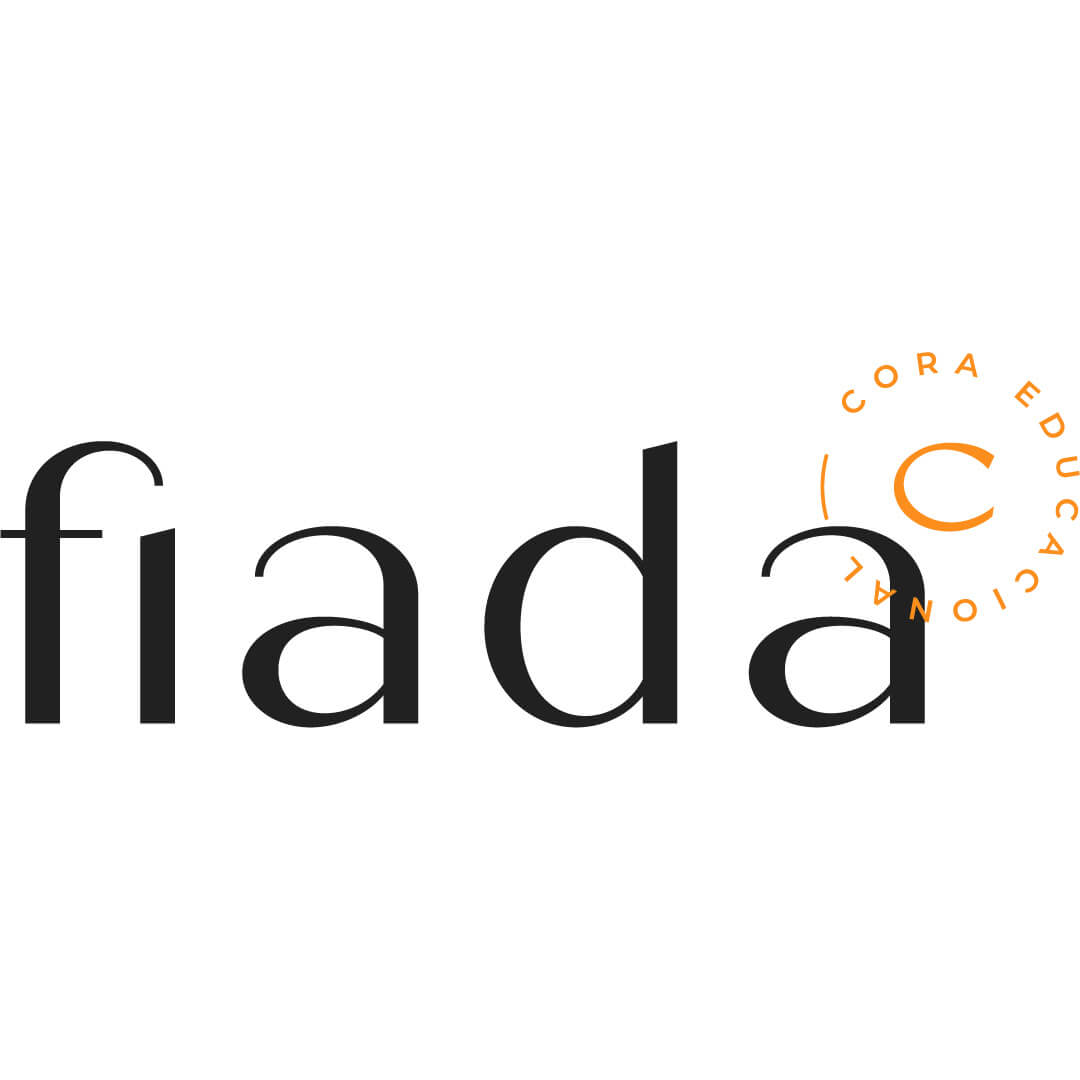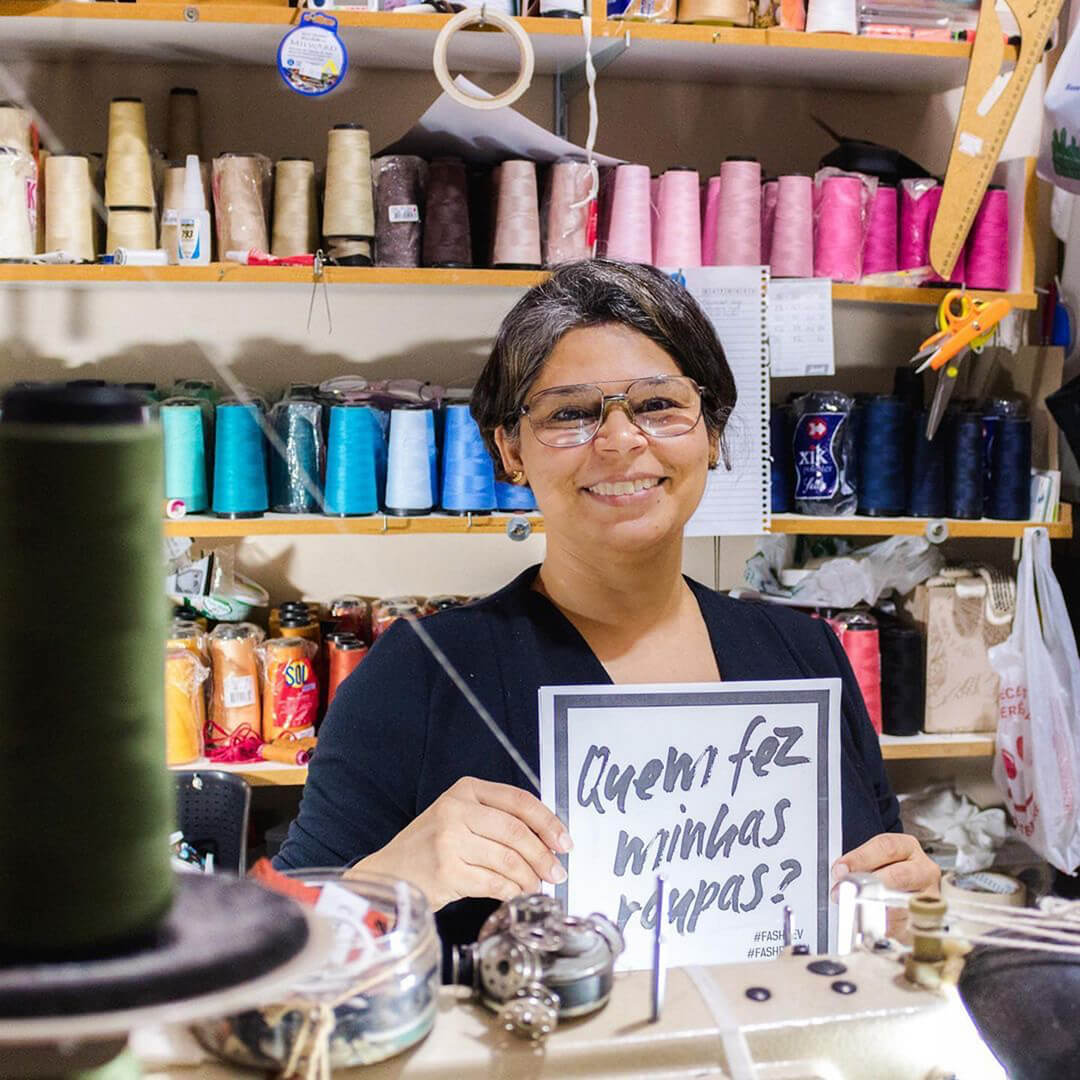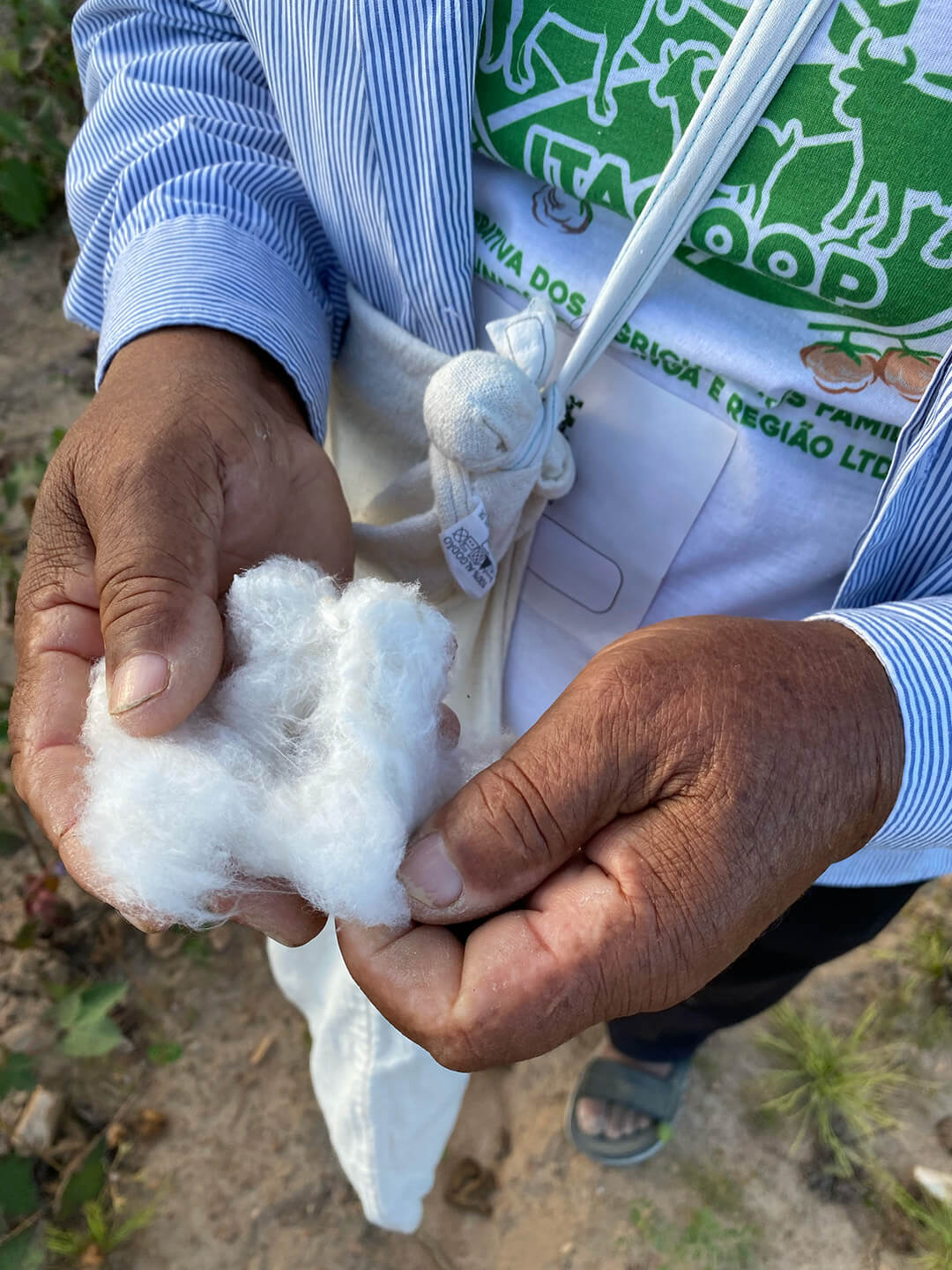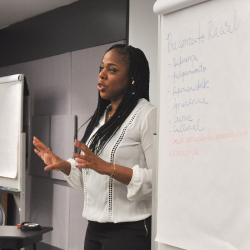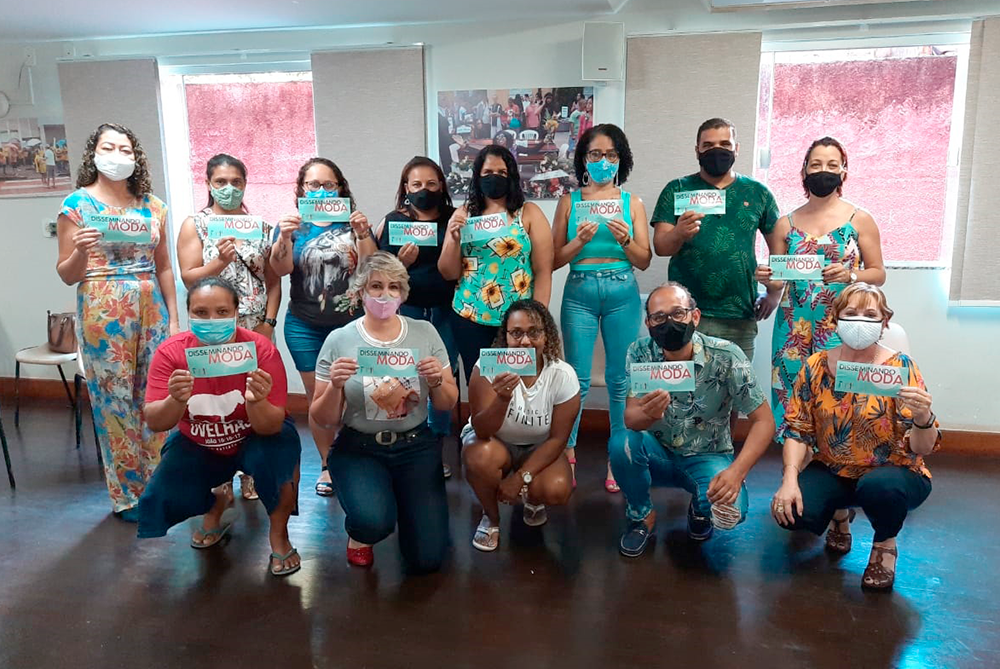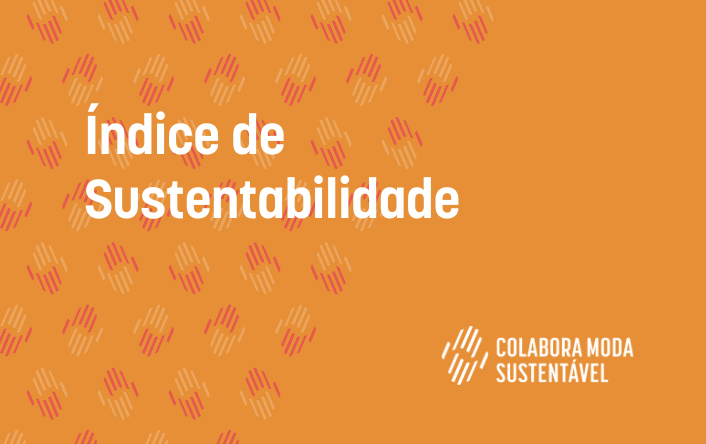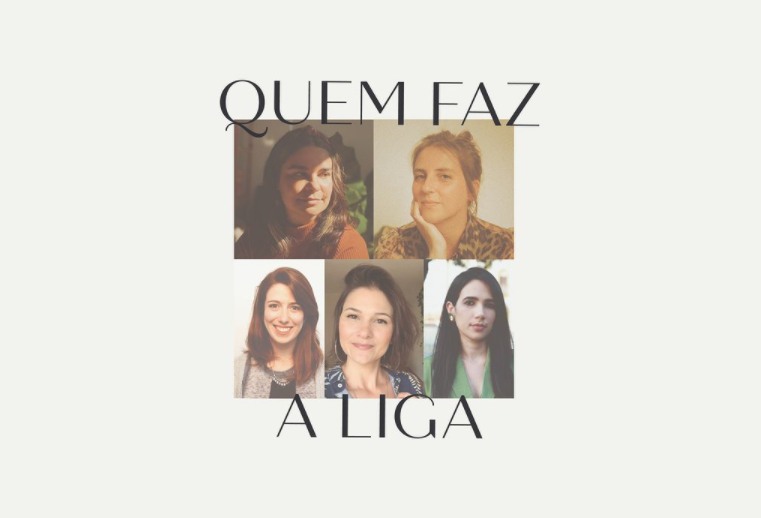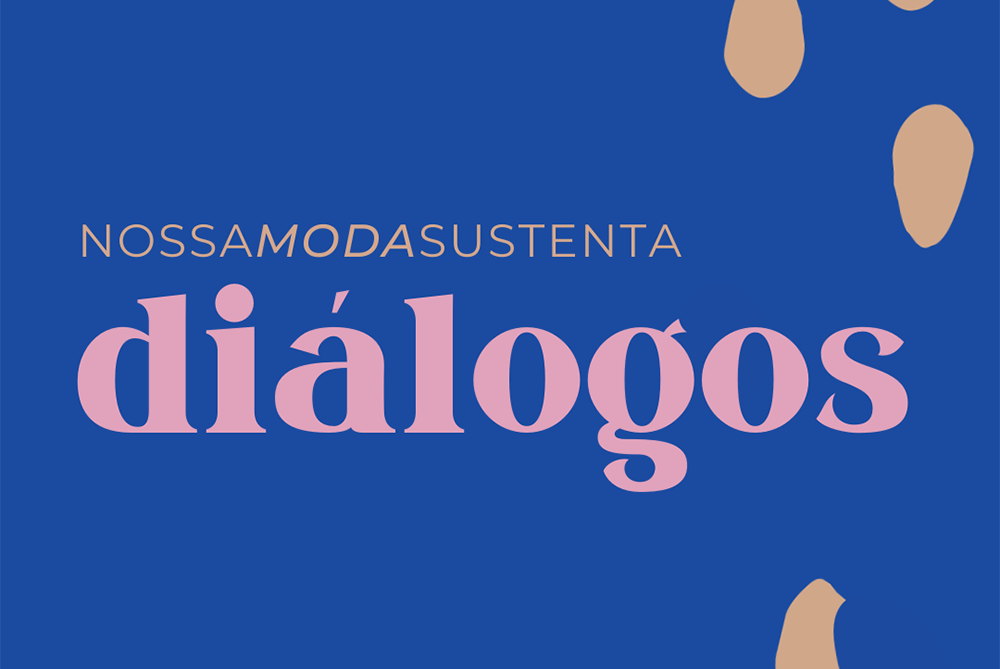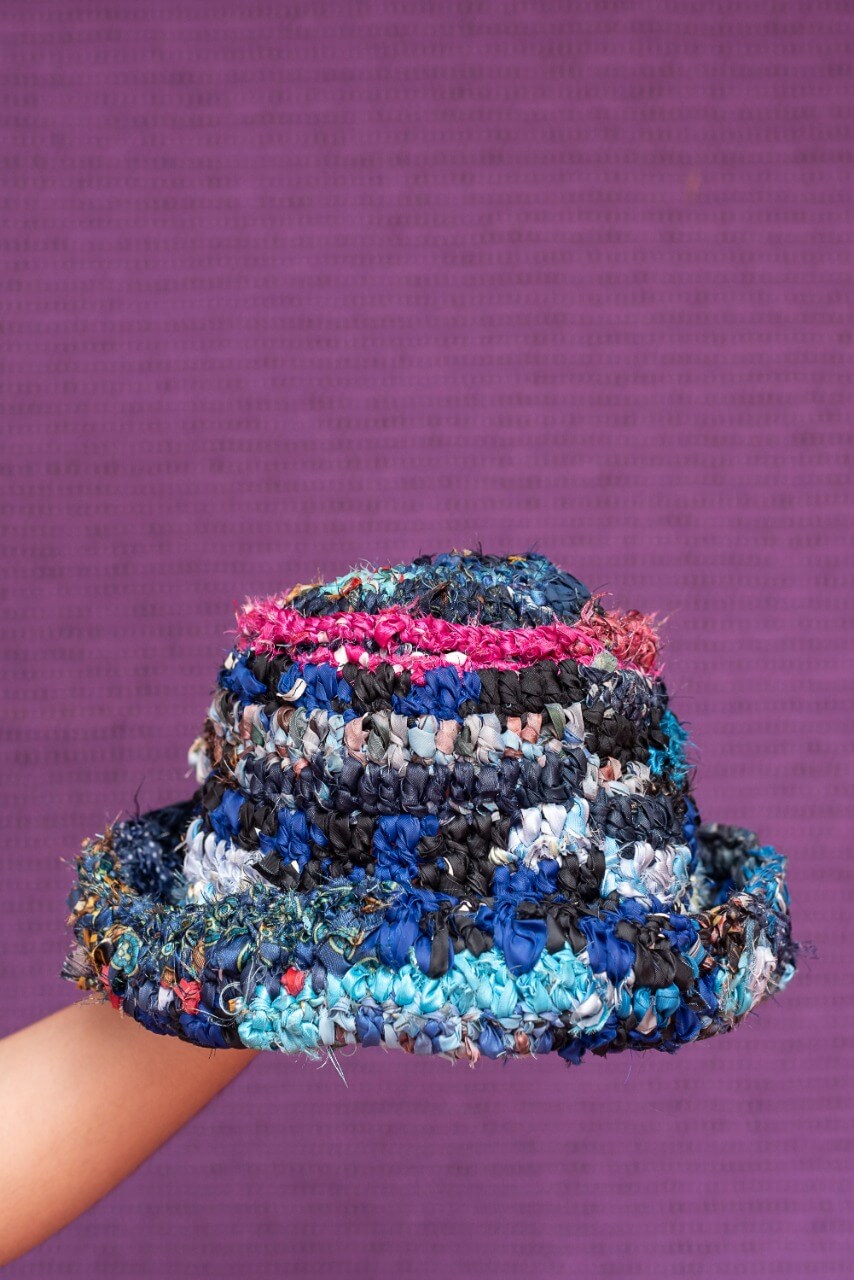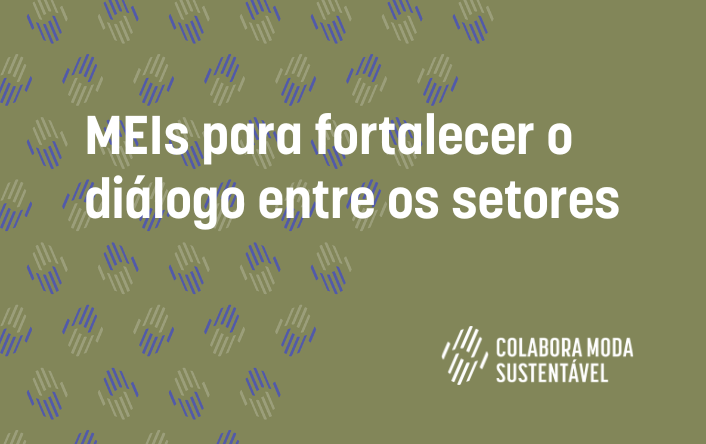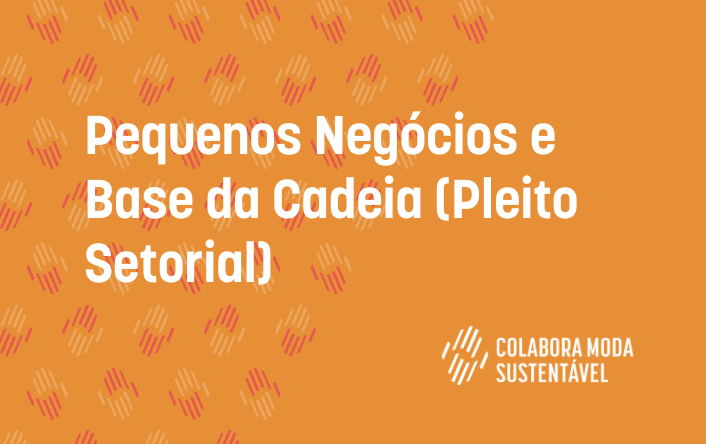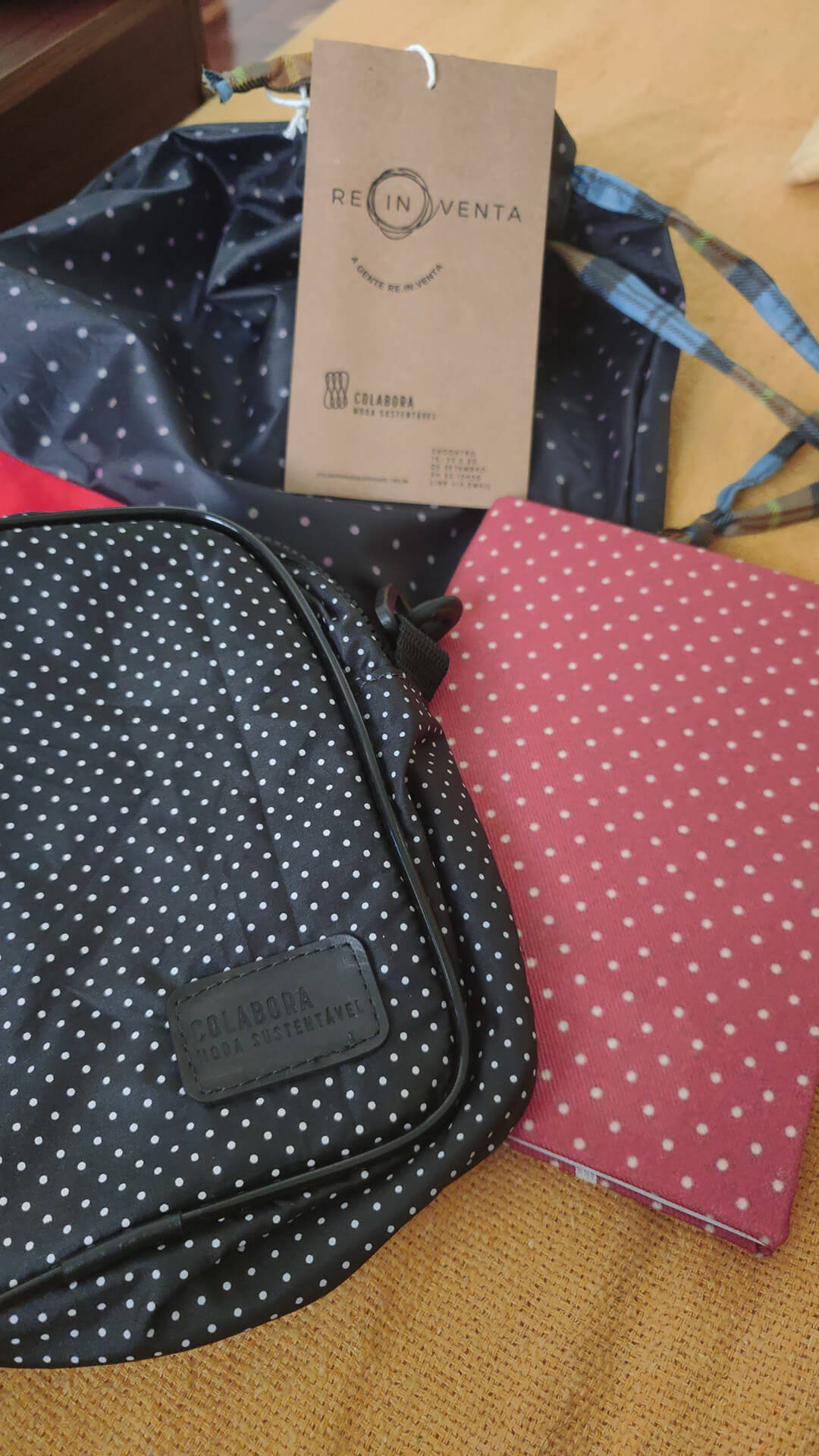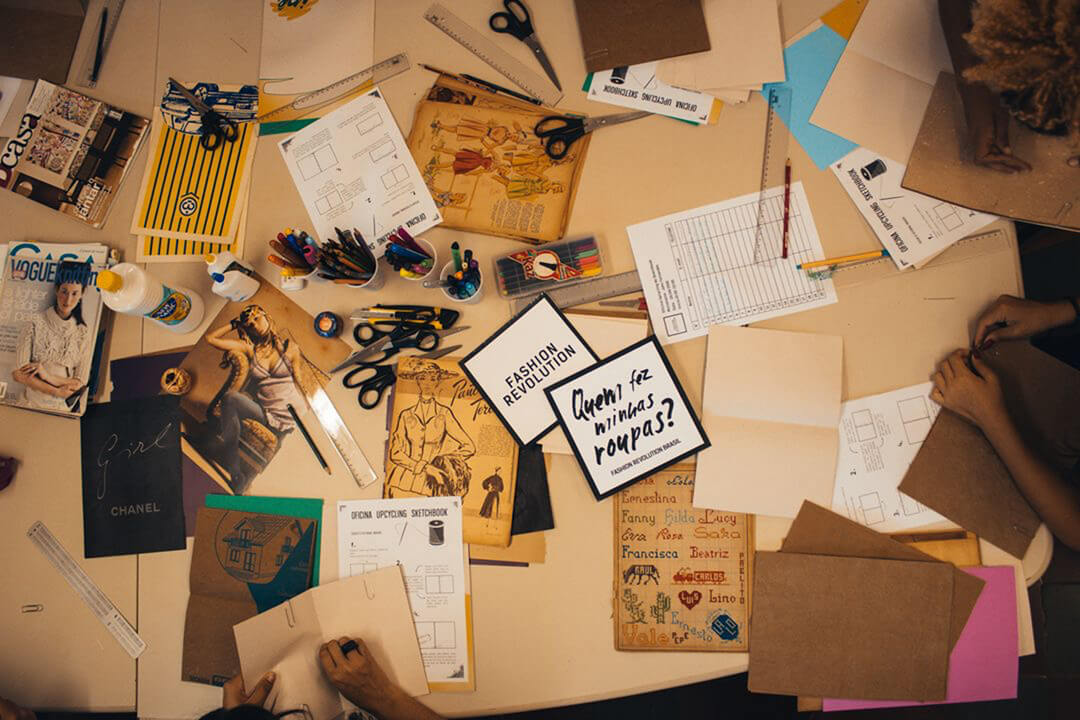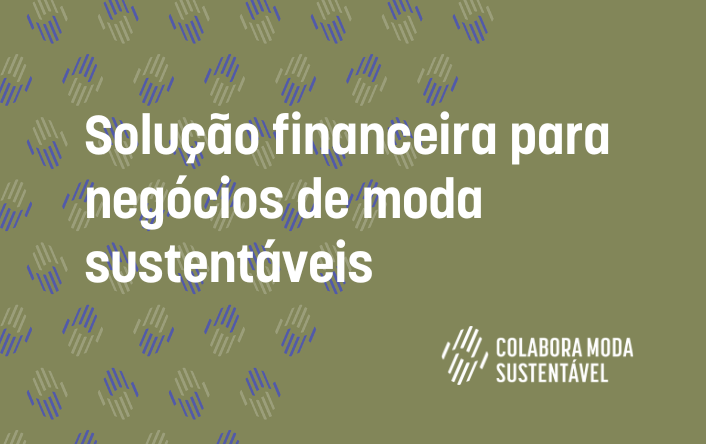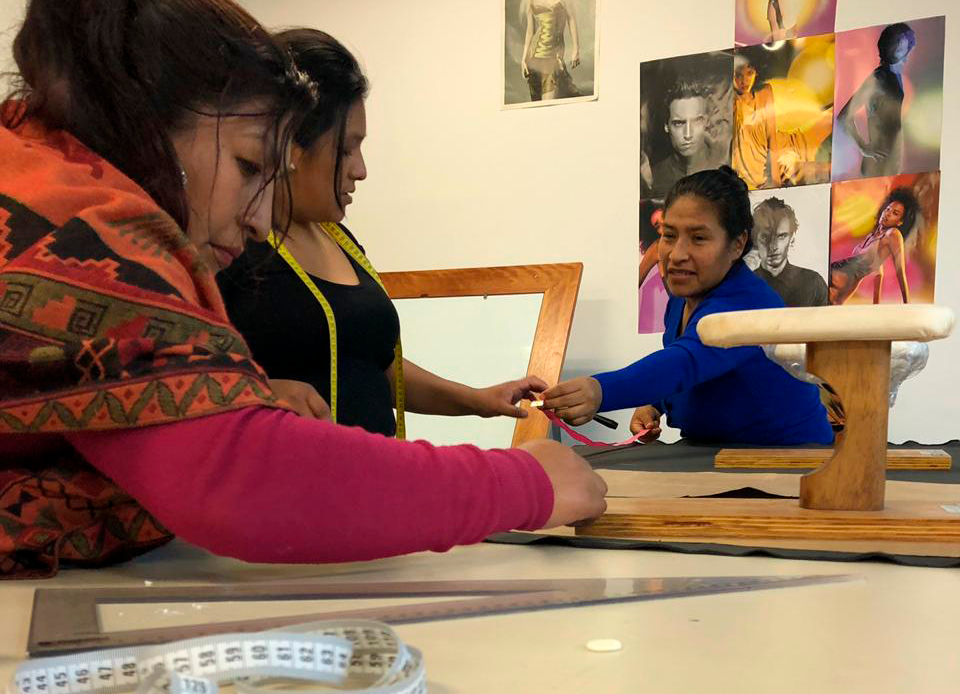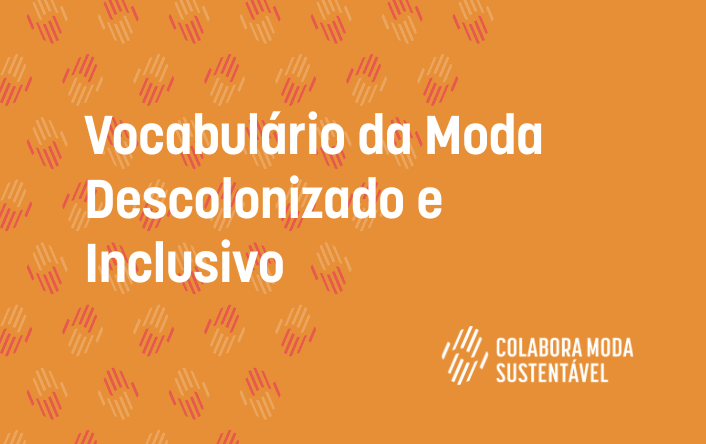ABOUT COLABORA MODA SUSTENTAVEL
Since 2017, Colabora Moda Sustentavel (Sustainable Fashion Collaboration) has been working to bring about change in one of the main sectors of the Brazilian economy.
With around 100 individuals and companies united around common goals, the multi-sector platform – whose members include the country’s main producers, industries, brands, retailers, sector associations, trendsetters, seamstresses and the country’s decision-makers- seeks to promote changes in culture, influence public policies, build new narratives and create concrete solutions for the benefit of ethical and sustainable Brazilian fashion.
OUR STORY
2017
Creation of the Sustainable Fashion Lab, driven by the C&A Institute and with strategic and methodological support from Reos Partners; definition of the Convening Alliance (made up of Abit, ABVTEX, OIT and the C&A Institute); formation of the first work team (with 41 Brazilian fashion leaders) and construction of Scenarios for the future of fashion in Brazil by 2035 .
2018
Evolution of the Convening Alliance into a Governance Council, identification of transformative axes, definition of the Theory of Change, and co-creation of 6 initiatives.
2019
DIEESE joins the Governance Board and the Advisory Board is created with the Hermann Hering Foundation. Reos Partners takes over the secretariat of Lab Moda Sustentável. Team renewed and 8 more initiatives co-created. Launch of the first Seed Resource call and support for 3 initiatives prototyped by Lab members.
2020
Publication of the governance instruments. Carrying out the ‘Lab Moda Sustentavel Call 2020’, in partnership with Pipe.Social (resulting in 175 mapped businesses and 3 mentored by major corporations). Partnership with Tre within the CoVida20 program. Co-creation of 10 initiatives, 7 of them supported by the Seed Funding.
2021
Evolution of Lab Moda Sustentavel into Colabora Moda Sustentavel and launching of the Membership Plan.
2022
Development of structural solutions for fashion through the Seed Funding, and initiative monitoring cycles; carrying out of publications, webinars, and the Regenerative and Circular Fashion Workshop; establishment of the “Collaborator Portal” and the Ethics Committee.
2023
Meet-up with Collaborators, focused on textile waste management; creation of the Guidebook to Sustainable Fashion Practices in Brazil; development and advancing of Cross-Sector Working Groups on Equity and Educommunication. Kickoff of a new chapter, rallying the network with independent initiatives and offering a supportive role for sustainability agendas.
THEORY OF CHANGE
WHAT KIND OF FASHION ARE WE GOING TO HAVE IN 2030? AND HOW ARE GETTING THERE?
These are the questions that the Colabora Moda Sustentavel team seeks to answer with its Theory of Change, which points towards a sustainable and ethical fashion. We work in the present, contributing to:
→ Improved living and working conditions in the industry with greater gender, ethnic-racial, LGBTQI, PwD, age, and territorial equity across all stages of the supply chain;
→ The use of natural resources in a regenerative and sustainable manner;
→ The strengthening of small and medium-sized enterprises;
→ The development of scalable sustainable solutions and businesses;
→ Sustainable and ethical buying and selling relationships within the fashion supply chain;
→ The reduction of informality;
→ The strengthening of relationships and collaboration among various interested parties within the sector;
→ Enhancing the skills and fostering the development of professionals;
→ The evolution of fashion culture and consumer awareness;
→ Favorable public policies for the development of sustainable fashion;
→ Development of investment mechanisms for sustainable fashion.
This change happens through interventions and collaborative actions in the following transformative axes:
Education, Science and Technology
Environment
Employment and Equity
Culture and Consumption
Business Model
Public Policies
THE BRAZILIAN FASHION WE WANT TO SUSTAIN
Involves all links in the chain • Is plural and diverse • Incorporates regions and territories • Is sunny, warm and colorful • Embraces conflict • Multiplies and boosts • Seeks regeneration • Moves between manual and industrial • Envisions an ancestral future • Affects • Humanizes • Welcomes technology • Brings together people, companies, and institutions • Pursues transparency • Proposes • Engages • Listens to all accents • Carries the texture of our raw materials • Pulses • Connects • Plants seeds • Believes in active hope • Responds to reality • Takes pride • Connects in order to transform • Creates the future now
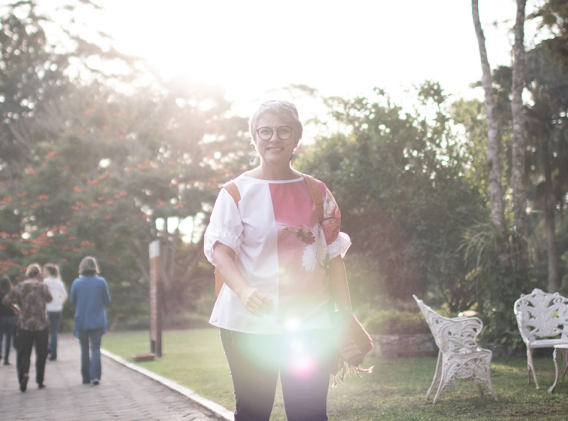
OUR COLLABORATIVE APPROACH
Our name derives from “Collaboration” for a reason: it embodies a fundamental value and represents the methodology that guides our endeavors. The Colabora Moda Sustentavel team is highly engaged in deepening knowledge and fostering a culture of sharing. As a platform, we need to achieve a high level of connectivity with other sustainability-focused movements.
In order to collectively build these paths towards transformation for the Brazilian fashion, we bring together individuals, companies, and institutions with diverse – and sometimes even conflicting -. profiles and interests. The relationship between stakeholders is crucial to Colabora Moda Sustentavel’s very existence, which is rooted in a systemic view of the fashion sector.
Together, we collaboratively prototype initiatives with the potential to enact change, connecting mentors and entrepreneurs, and pursue financial solutions to accelerate them. Additionally, we are involved in crafting future scenarios, organizing events and publications to reach a wider audience, and developing skills.
MULTI-SECTOR INITIATIVES -
COLLABORATIVE INNOVATION
Drawing from a systemic view of the Brazilian fashion landscape, we have outlined five transformative axes to modify the production chain in the coming years:
- BUSINESS MODEL
- EMPLOYMENT AND INEQUALITY
- ENVIRONMENT
- CULTURE AND CONSUMPTION
- EDUCATION, SCIENCE AND TECHNOLOGY
Based on these axes, we have co-created and prototyped 26 initiatives since 2017. Here are a some of them:
TRANSFORMATIVE
SCENARIOS
Scenarios are narratives that describe what could happen. They serve to inspire, stimulate, and influence strategies, decisions, and actions. Since the future is not set, it is created. Scenarios also help us build alternative possible futures. To develop these scenarios, we need a collective that represents the fashion ecosystem, addressing pertinent issues, unacceptable situations, and influential forces. This enables the investigation of imaginative possibilities for future fashion systems.
Imagination is the starting point to ask ourselves, among all possibilities, what is the future that we want. At Colabora Moda Sustentavel, we have crafted four Scenarios for the future of fashion in Brazil by 2035 – all of which are relevant, challenging, plausible, and well-defined. These scenarios have provided the foundation for developing and prototyping innovative multi-sector initiatives, aimed at improving the Brazilian apparel supply chain in the coming years.
For further information, please check the documents below:

